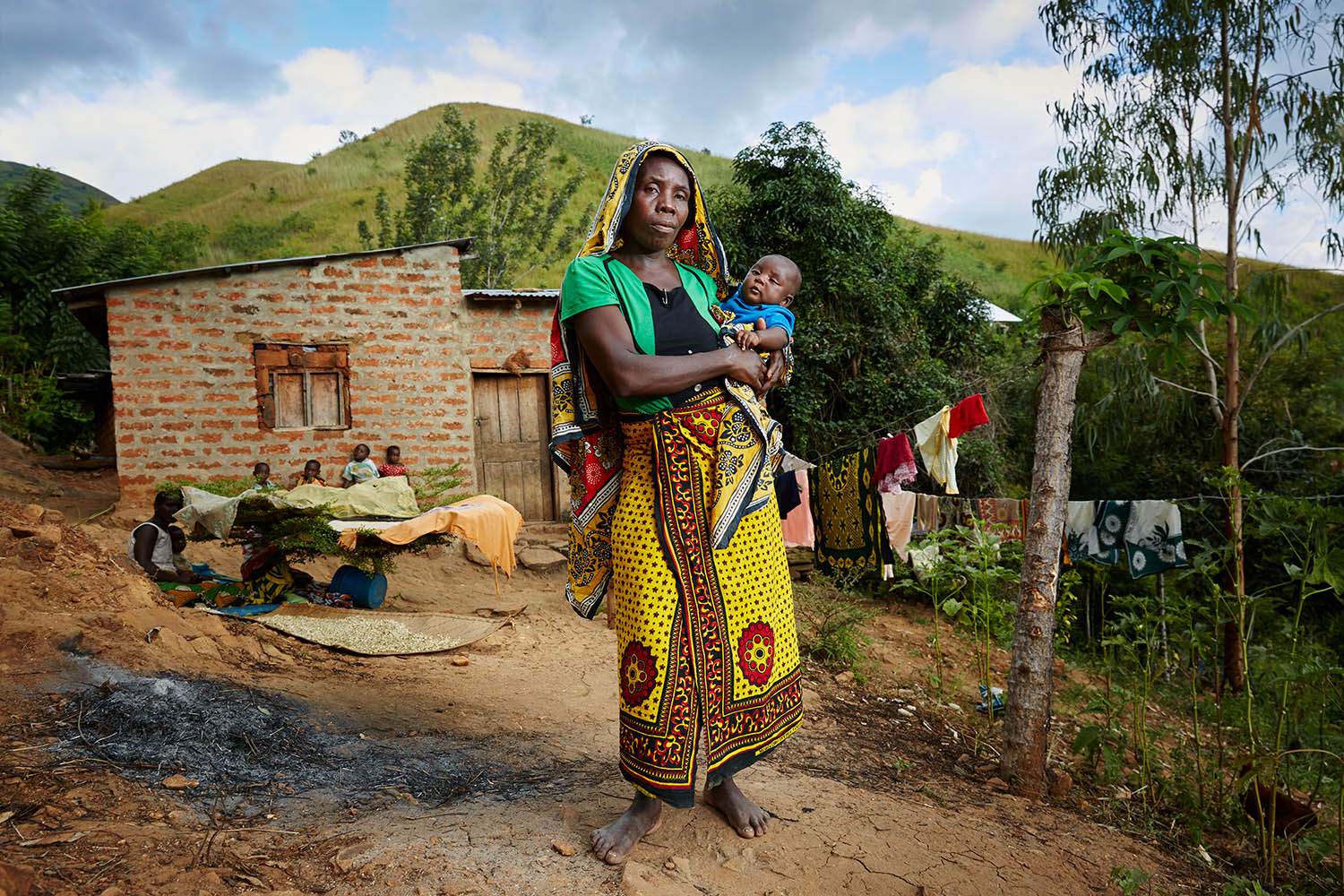
Paulo with his mother Imelda at their home in Peko Misegese Village, not far from Malali, Tanzania, 2016.
Paulo has a cataract in one eye.
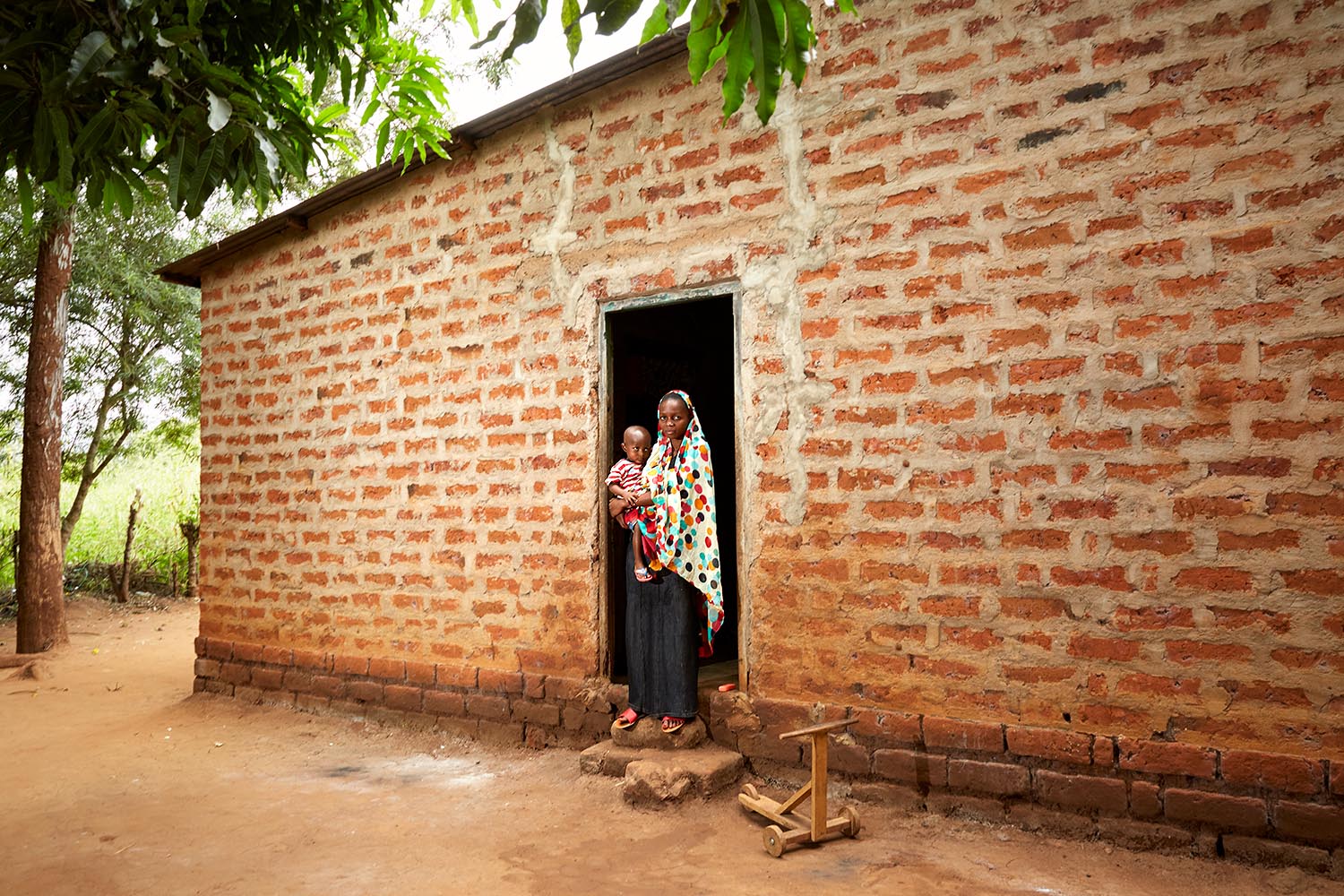
Mkenge Village, near Morogoro, Tanzania, 2016.
The village in which they live, Mkenge, sits a short walk back from a narrow tarmac road; and is made up of a few 3 or 4 roomed mud brick houses clustered around a clearing dotted with trees.
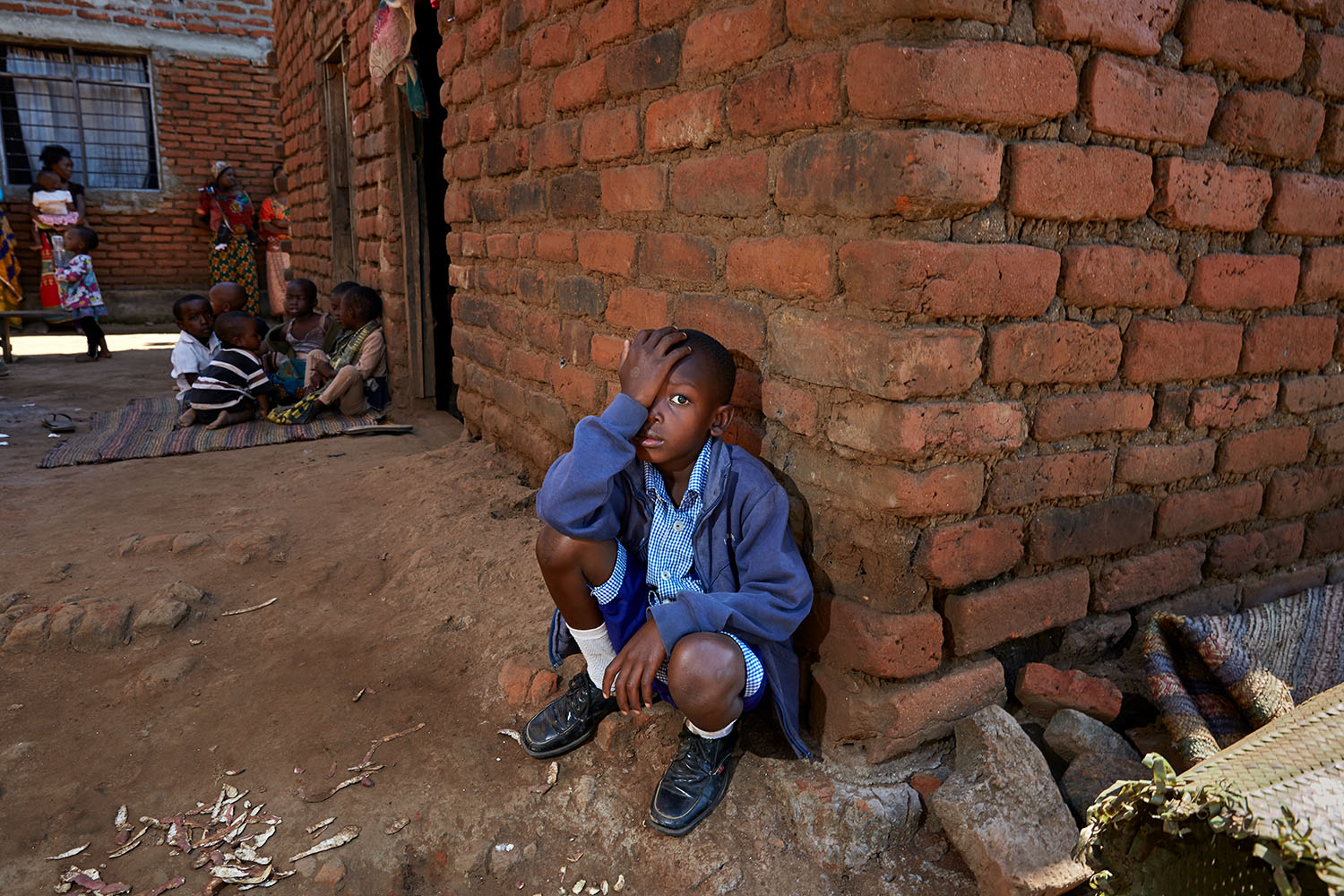
Haji’s home, Tanzania, 2016.
Haji has a cataract in his right eye that has been impairing his vision since October 2015. His grandmother Elizabeth, who Haji lives with, along with his brothers, isn’t quite sure what happened to her grandson’s eye, because Haji was living with his mother at the time.
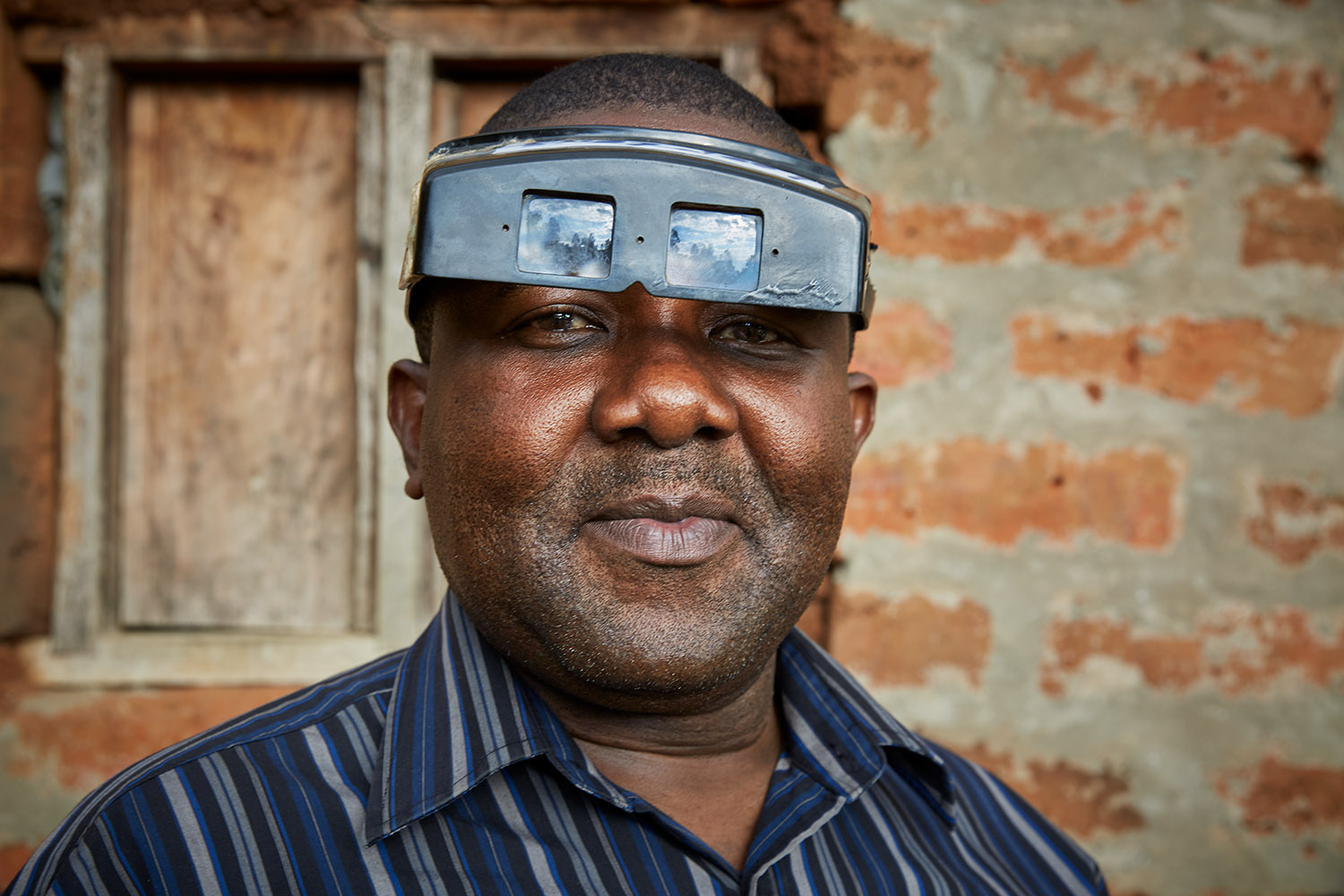
Mkenge Village, near Morogoro, Tanzania, 2016.
Dr. Ashraf, one of the doctors who travels across Tanzania in search of children who are either already suffering from cataract, or who are at risk of developing it.
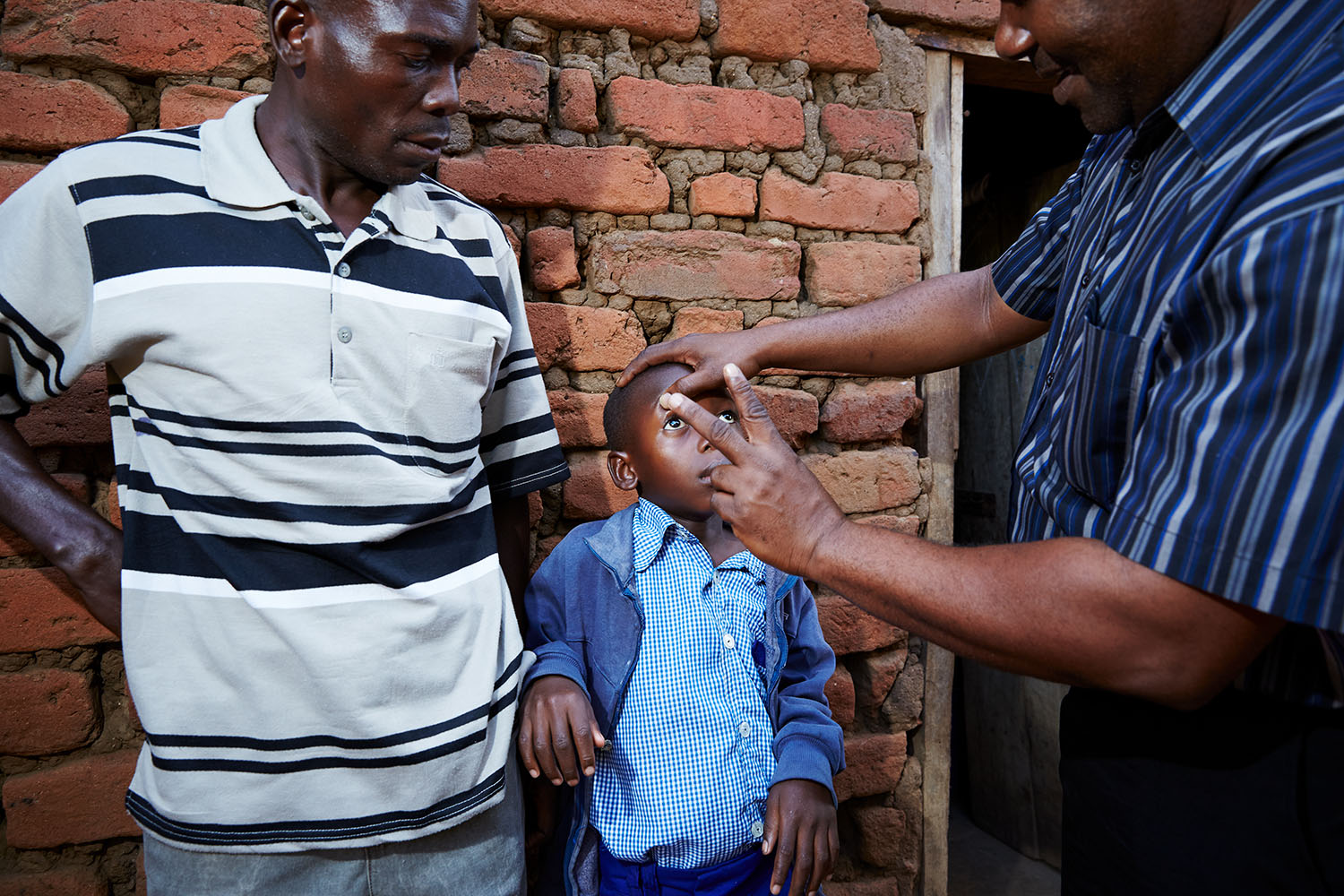
HAji’s eye’s are tested by Dr. Ashraf as his father looks on, Haji’s home, Tanzania, 2016.
Approximately three-quarters of the estimated 1.4 million blind children in the world live in the poorest regions of Africa and Asia. Cataract is widely seen as something that affects older people, but in a lot of developing countries it’s a huge problem for children – they can be born with cataract or develop it as a result of an accident.
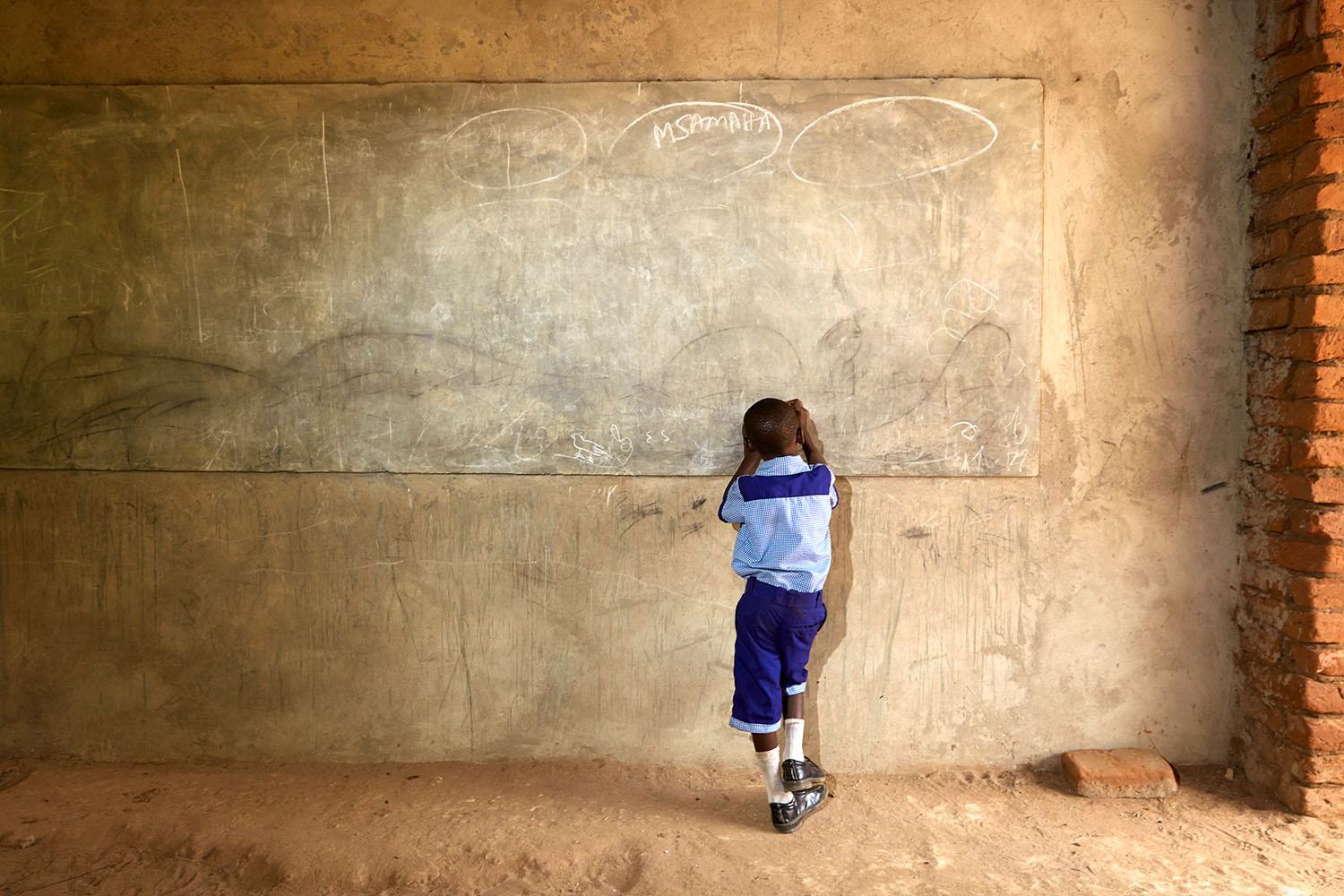
Haji doodles on a blackboard, Tanzania, 2016.
When he grows up, he says he wants to be a farmer like his dad.
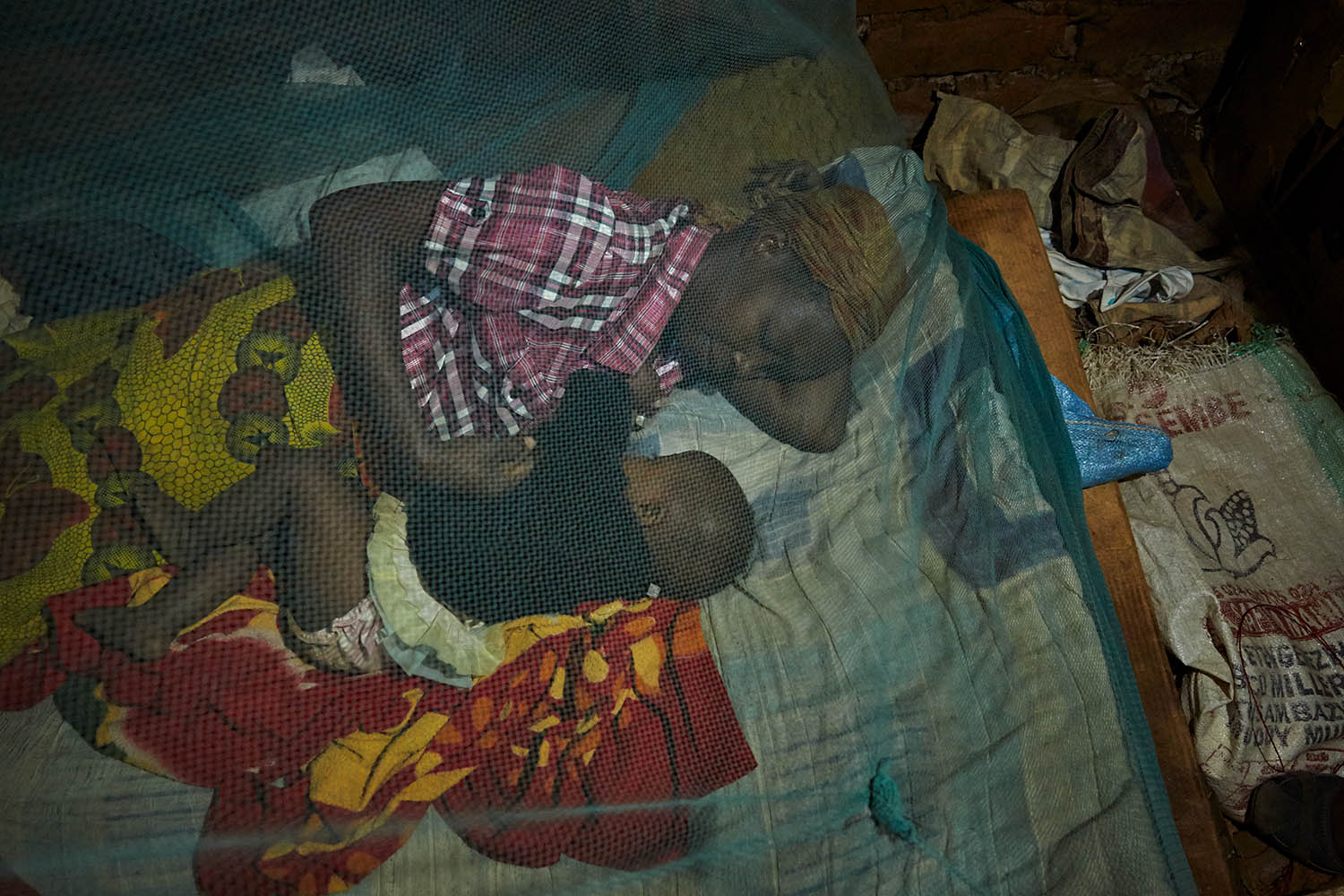
Mbili Village, Morogoro area, Tanzania, 2016.
Yulieta: “Immediately after the birth I noticed that the eyes were not normal. I looked in the pupils and found a white thing instead off a black dot – that’s when I realized something was not right. Although I have never had a child with cataract, I knew immediately it was a cataract. I asked the nurse about it but she told me that Magdalena just had a lot of swagger!”
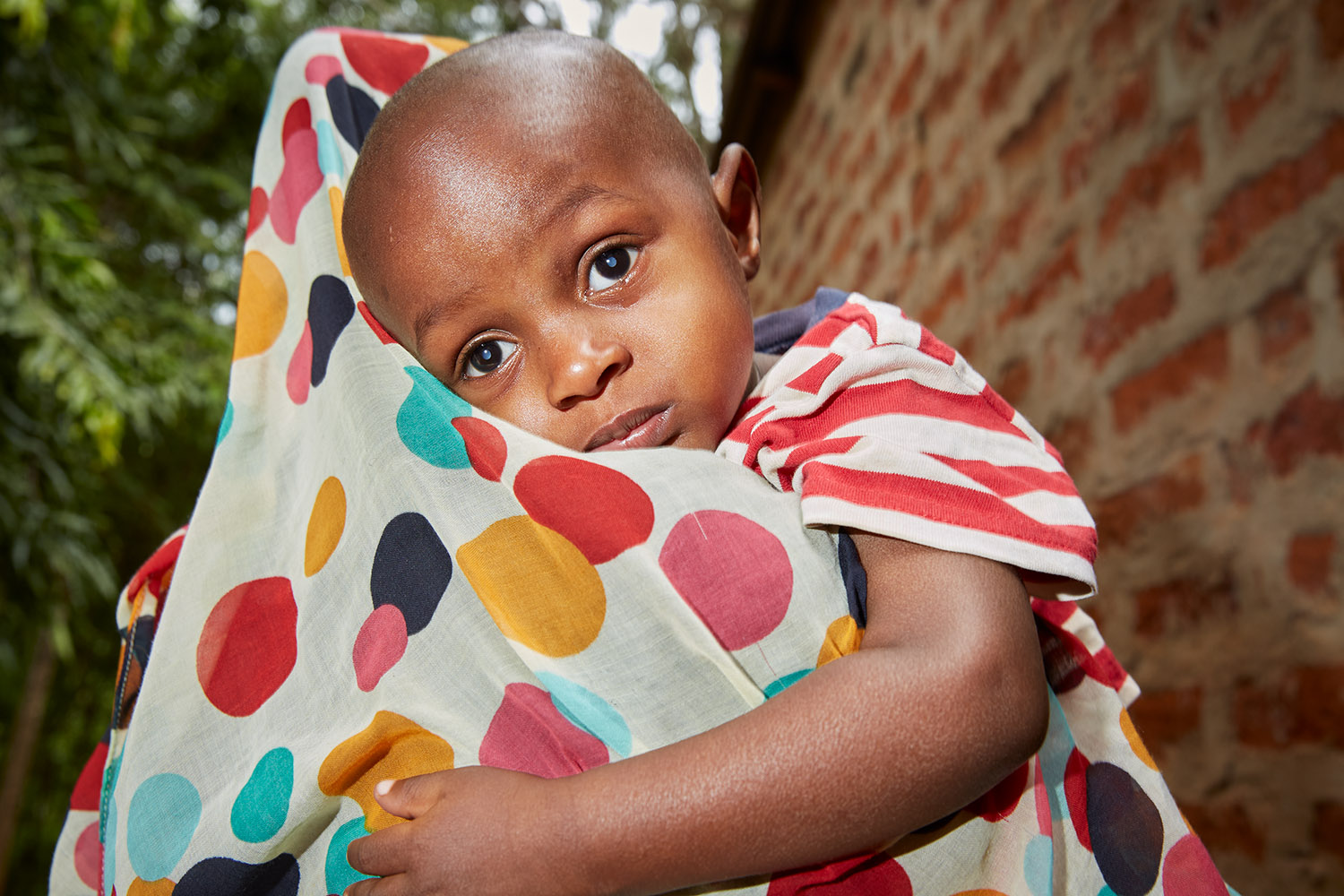
Mkenge Village, near Morogoro, Tanzania, 2016.
Zena: “At the hospital they looked at him and they said they can’t do anything about it [the regional hospital doesn’t have the facilities to perform child cataract surgeries] so they referred me to Muhimbili [a hospital in Dar Es Salaam, approximately four hours by car] and they told me to go home and find some money to take him”.
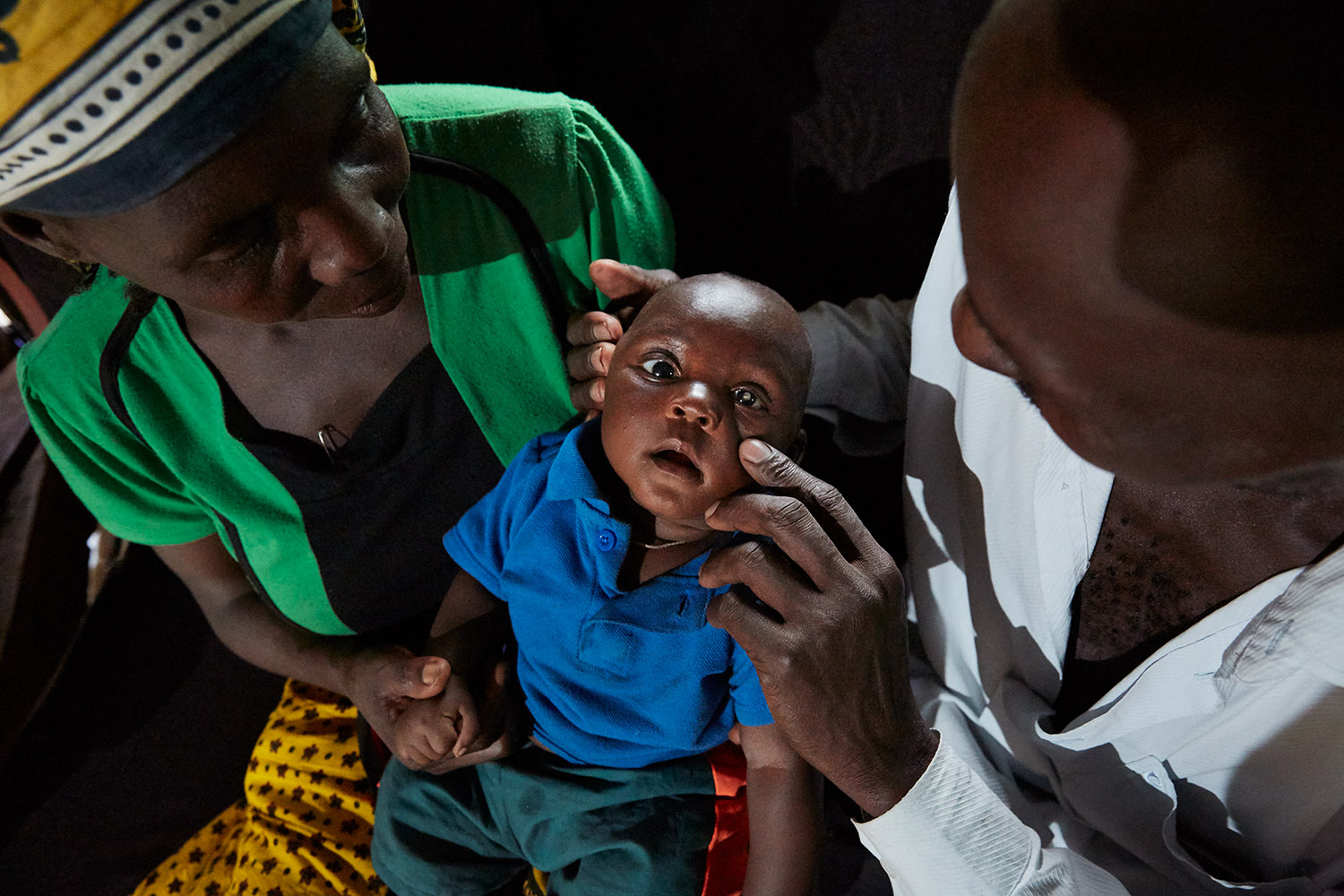
Muhimbili Hospital, Dar Es Salaam, Tanzania, 2016.
Imelda: “When Paulo was just two months old, we looked into his eyes and we could see something in the eye. We could tell that he couldn’t see, I don’t know how, but we could just tell. We have six children already, but nobody else has had eye problems. I was filled with sadness to realize Paulo could not see. I am sad that he cannot see my face.”.
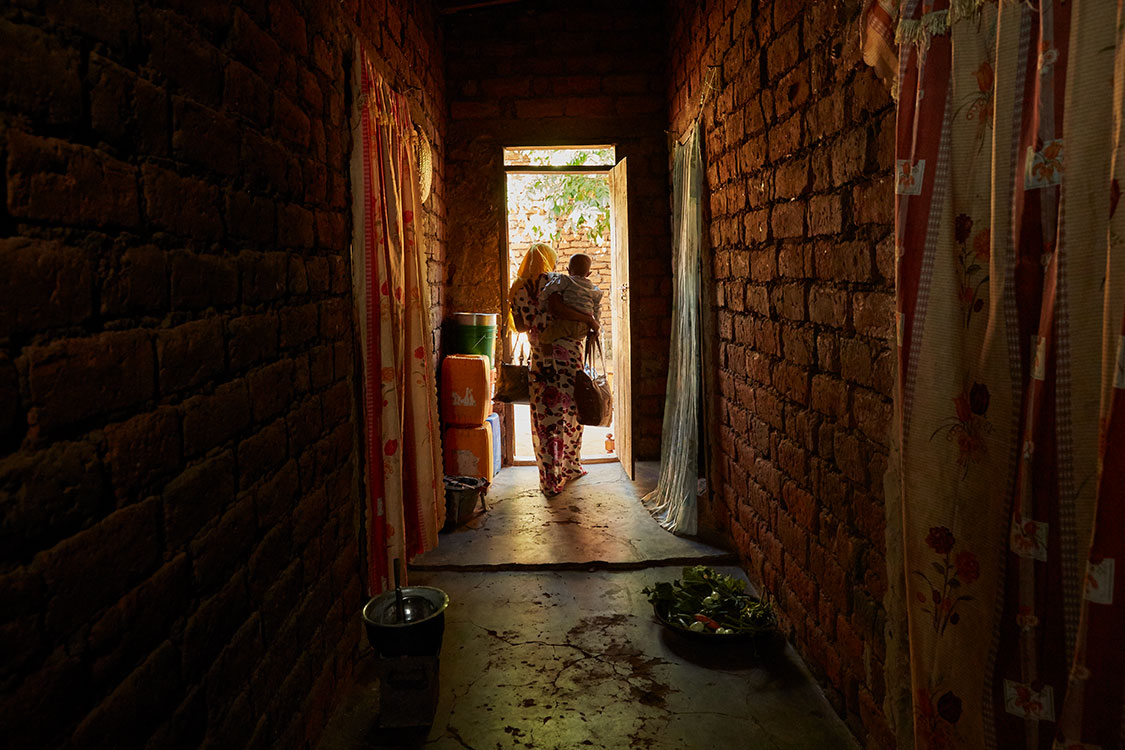
Baraka and his mother leave home to head to Muhimbili Hospital in the capital Dar Es Salaam, Mkenge Village, near Morogoro, Tanzania, 2016.
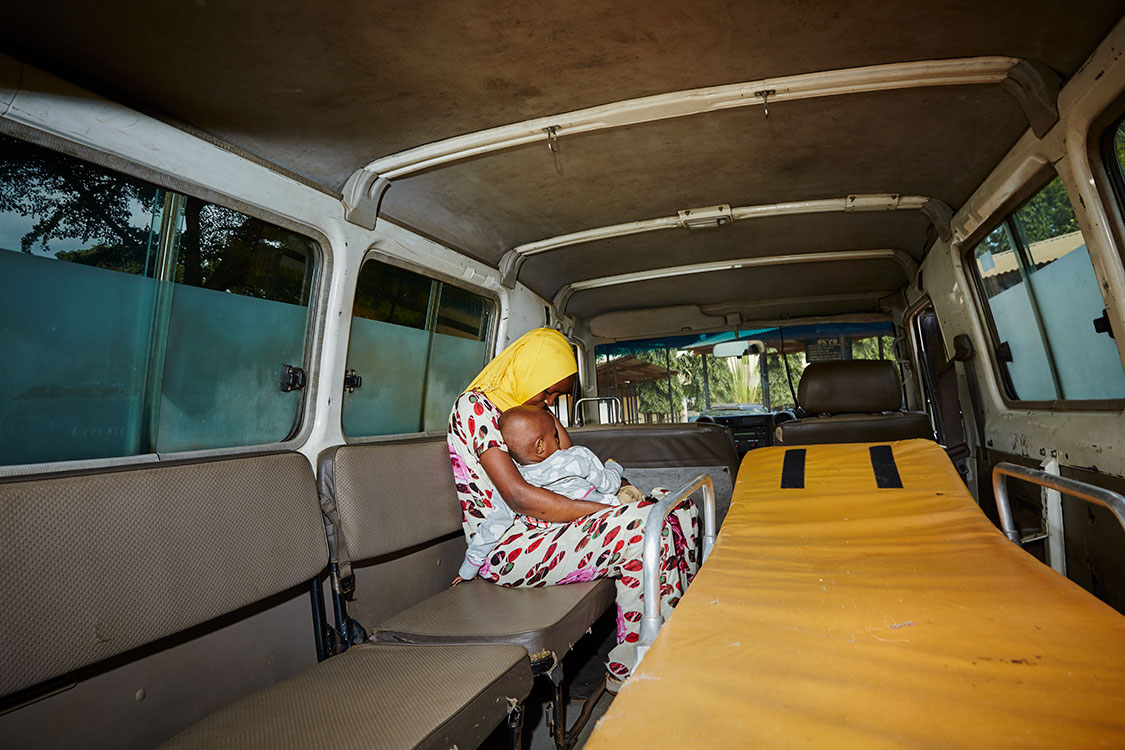
Zena comforts her son Baraka as they sit in an ambulance which is on its way to Muhimbili Hospital in Dar Es Salaam, Tanzania’s capital city, 2016.
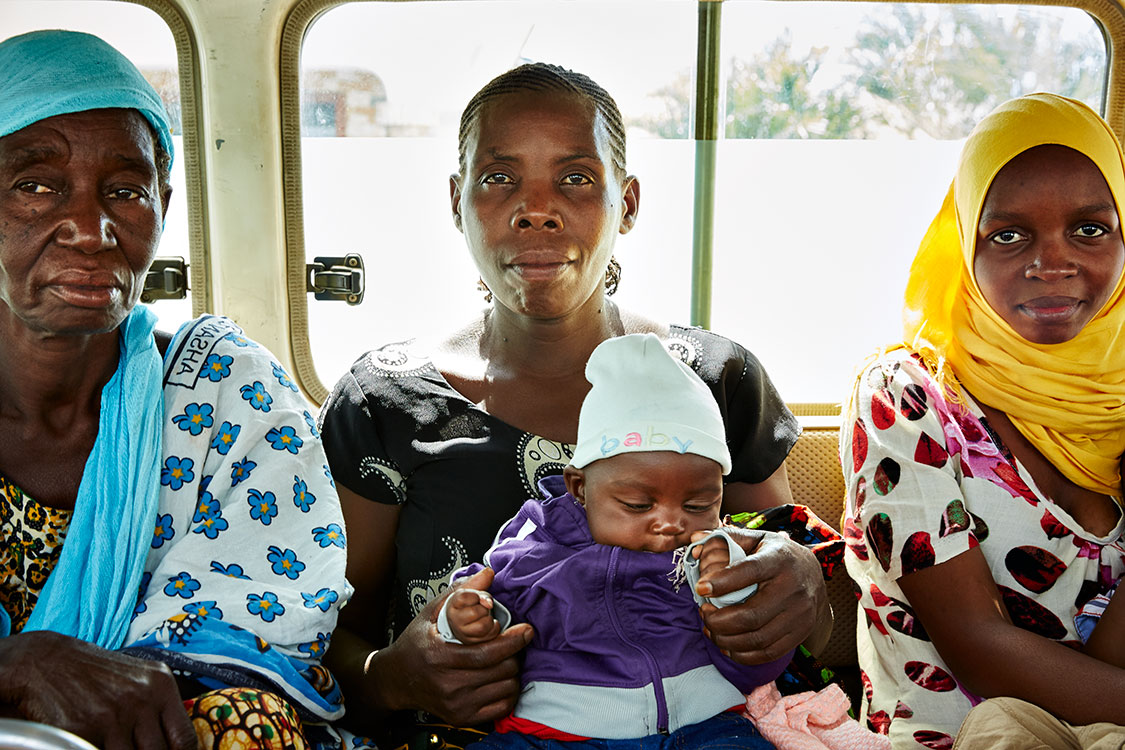
From left to right: Elizabeth, Imelda and Zena share an ambulance which is on its way to Muhumbili Hospital in Tanzania’s capital, Dar Es Salaam, 2016. Paolo sits on his mother’s lap, while Haji and Baraka are seated off camera.
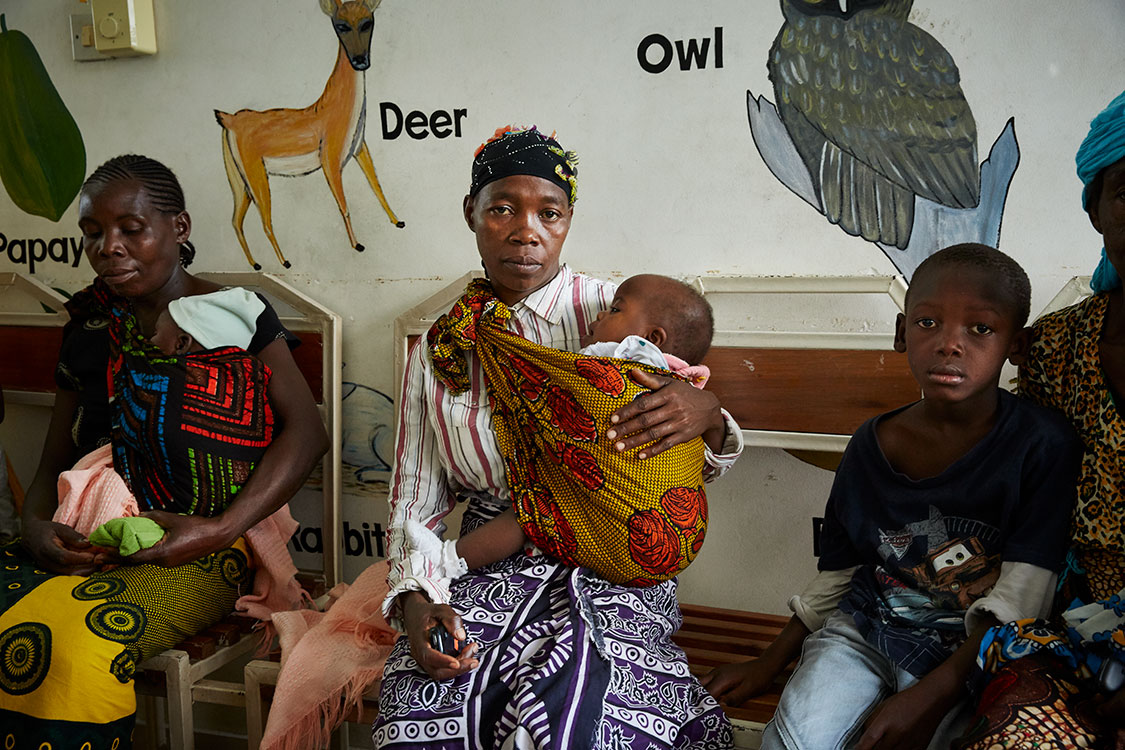
Muhimbili Hospital, Dar Es Salaam, Tanzania, 2016.
Yulieta: “Coming here has taught me a lot, and one of the things it has taught me is that I’m not alone, and that Magdalena’s not alone, and that there are so many people around. Talking to other mothers, it has taught me to be strong.”
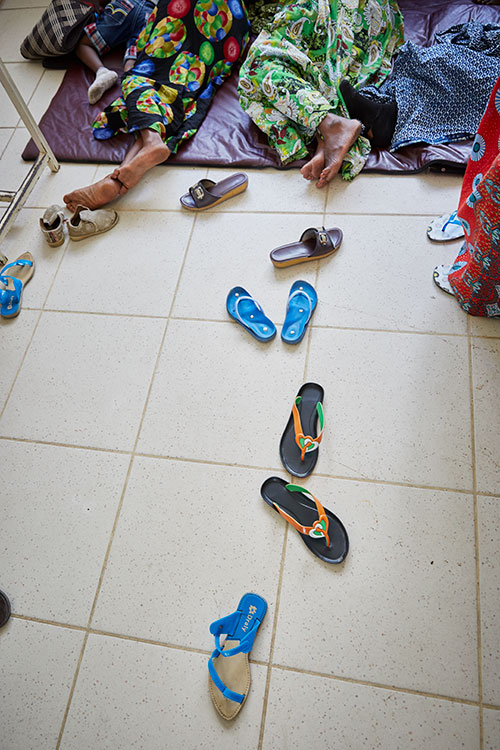
Muhimbili Hospital, Dar Es Salaam, Tanzania, 2016.
Dr Nyaluke: “Coming to us is an issue. The families are afraid to travel long distances, coming to a big city like this. Even if they want to, even if they are not afraid they may have no transport, no money to make them come this far.”
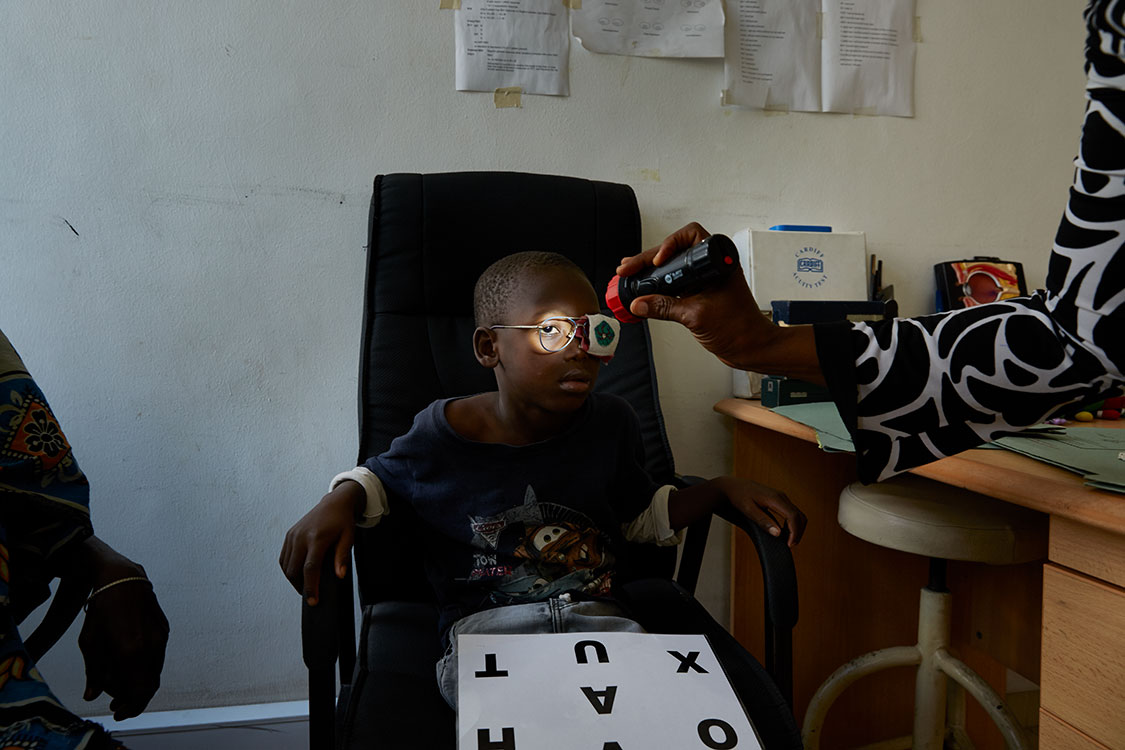
Muhimbili Hospital, Dar Es Salaam, Tanzania, 2016.
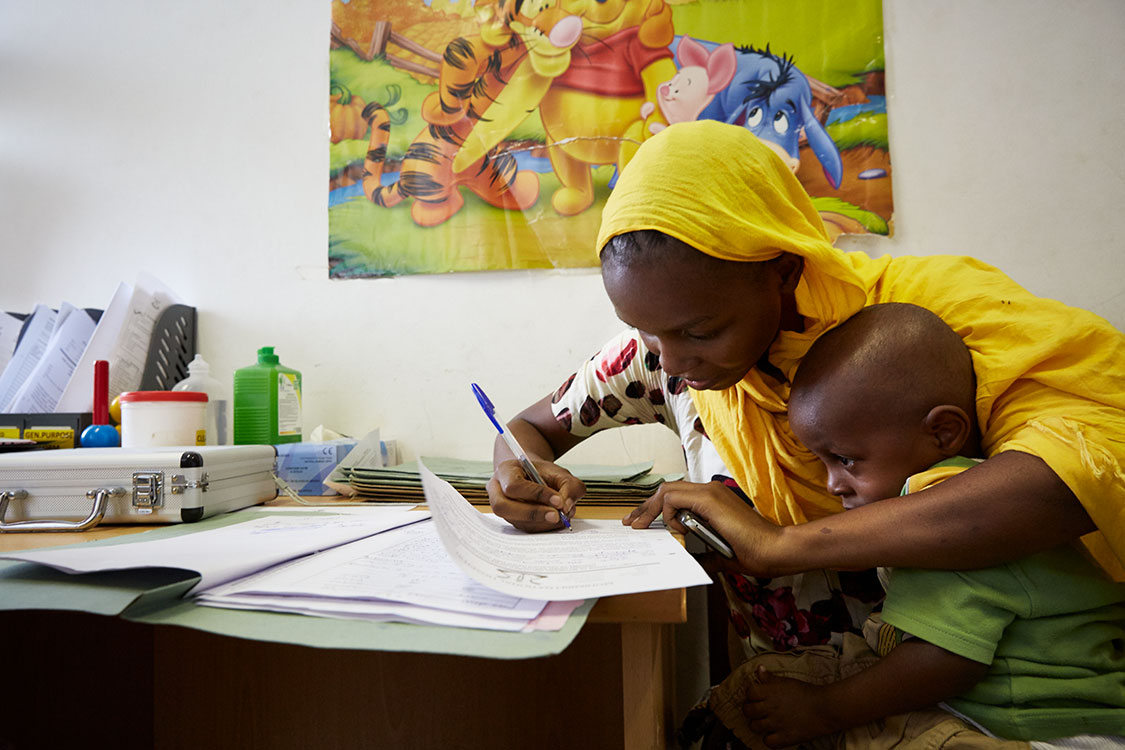
Baraka looks on as his mother, Zena, signs a document related to her son’s operation, Muhimbili Hospital, Dar Es Salaam, Tanzania, 2016.
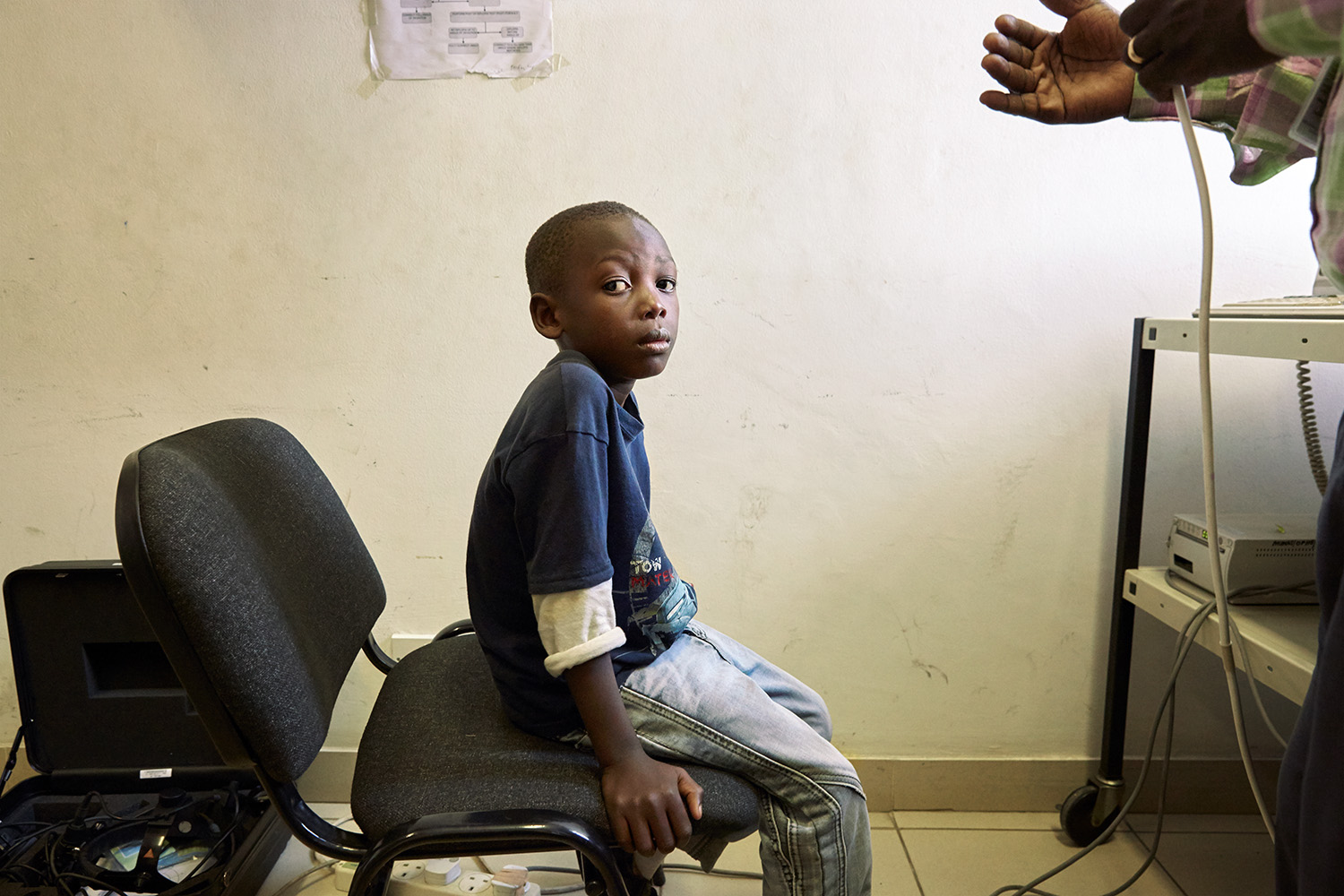
Muhimbili Hospital, Dar Es Salaam, Tanzania, 2016.
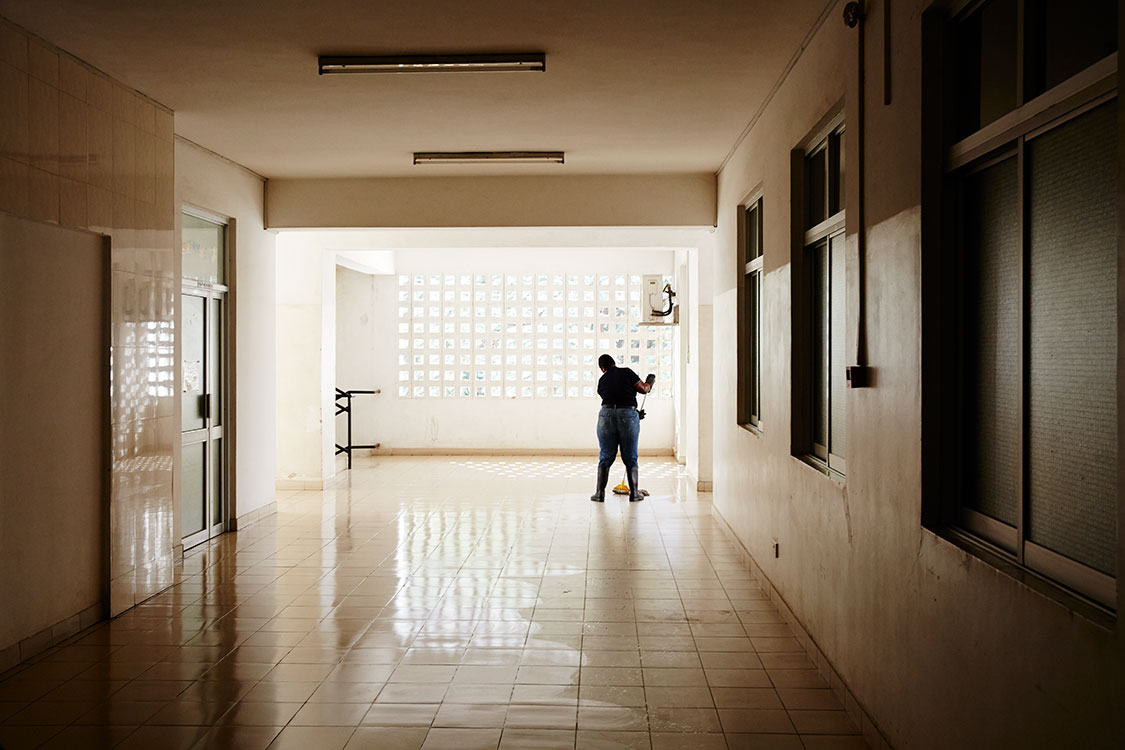
Muhimbili Hospital, Dar Es Salaam, Tanzania, 2016.
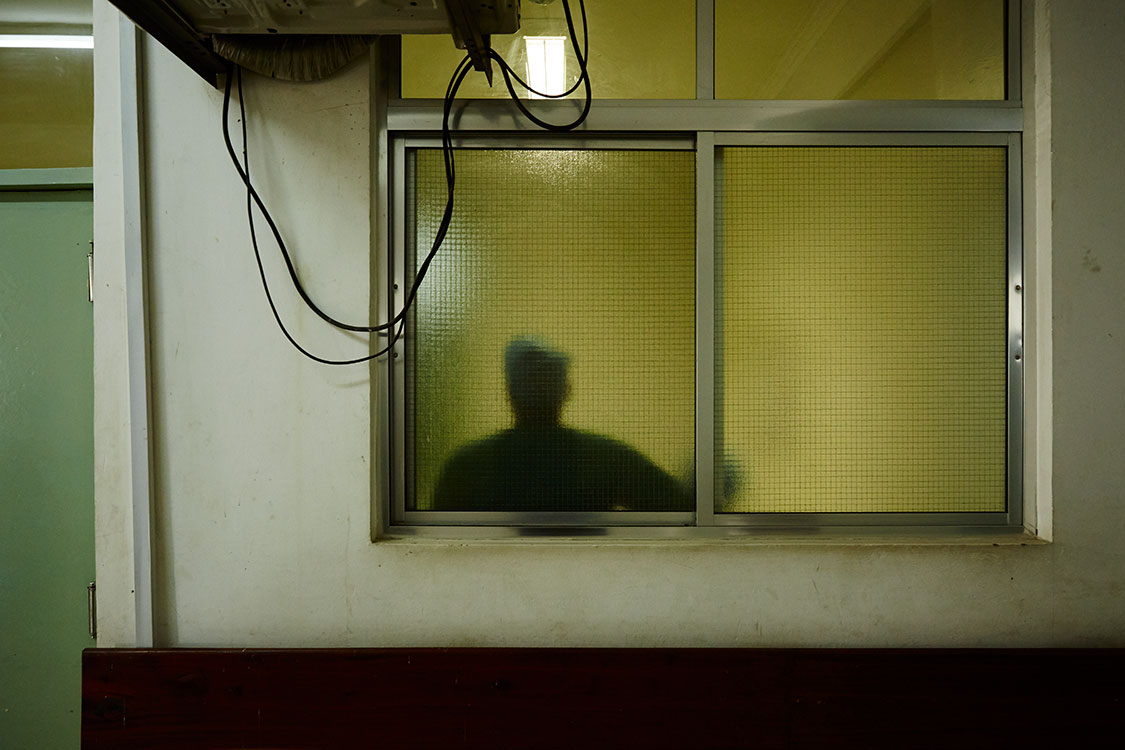
Muhimbili Hospital, Dar Es Salaam, Tanzania, 2016.
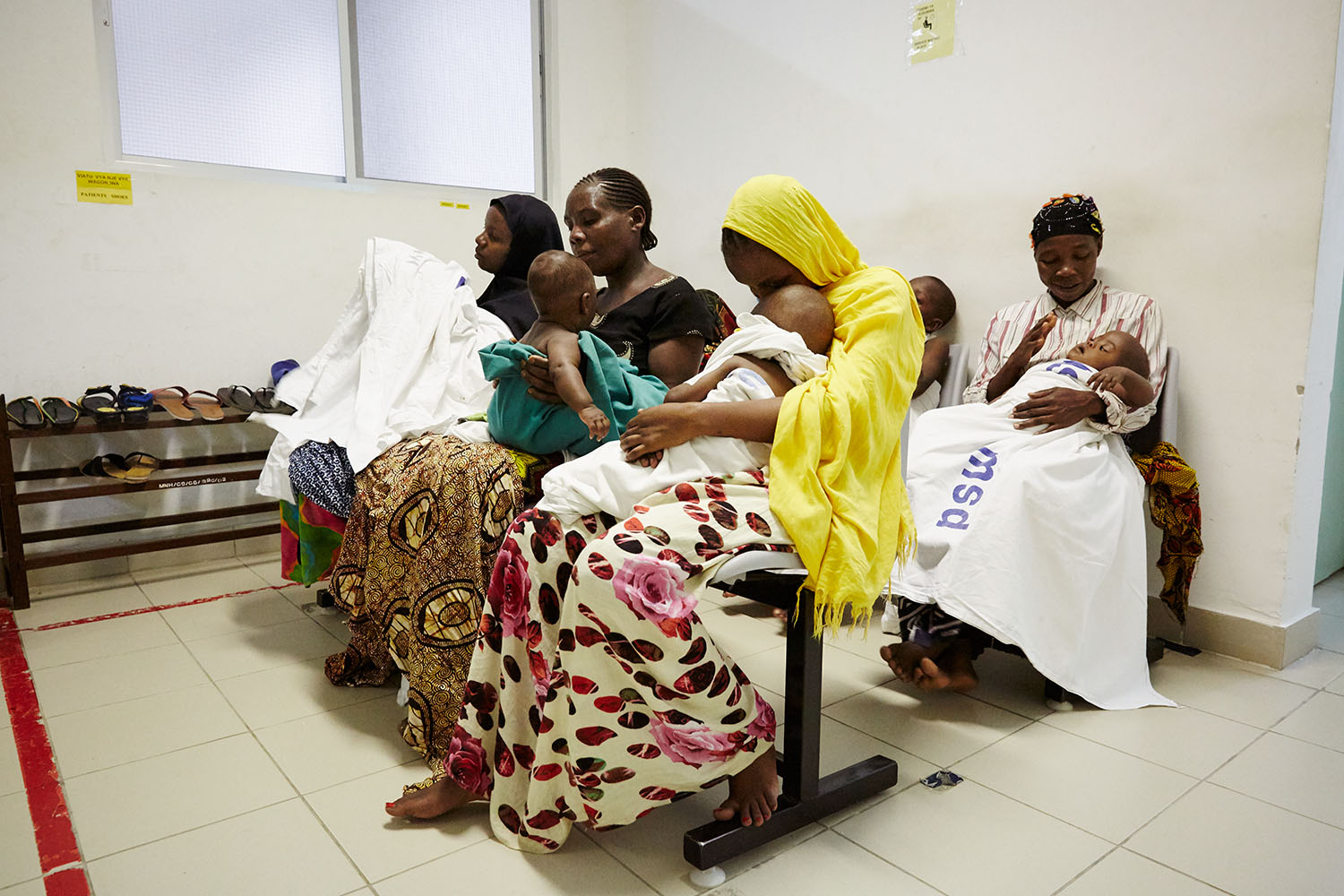
Zena and Baraka, Elizabeth and Haji, Imelda and Paulo, and Yulieta and Magdalena wait to be taken into the O.R, Muhimbili Hospital, Dar Es Salaam, Tanzania, 2016.
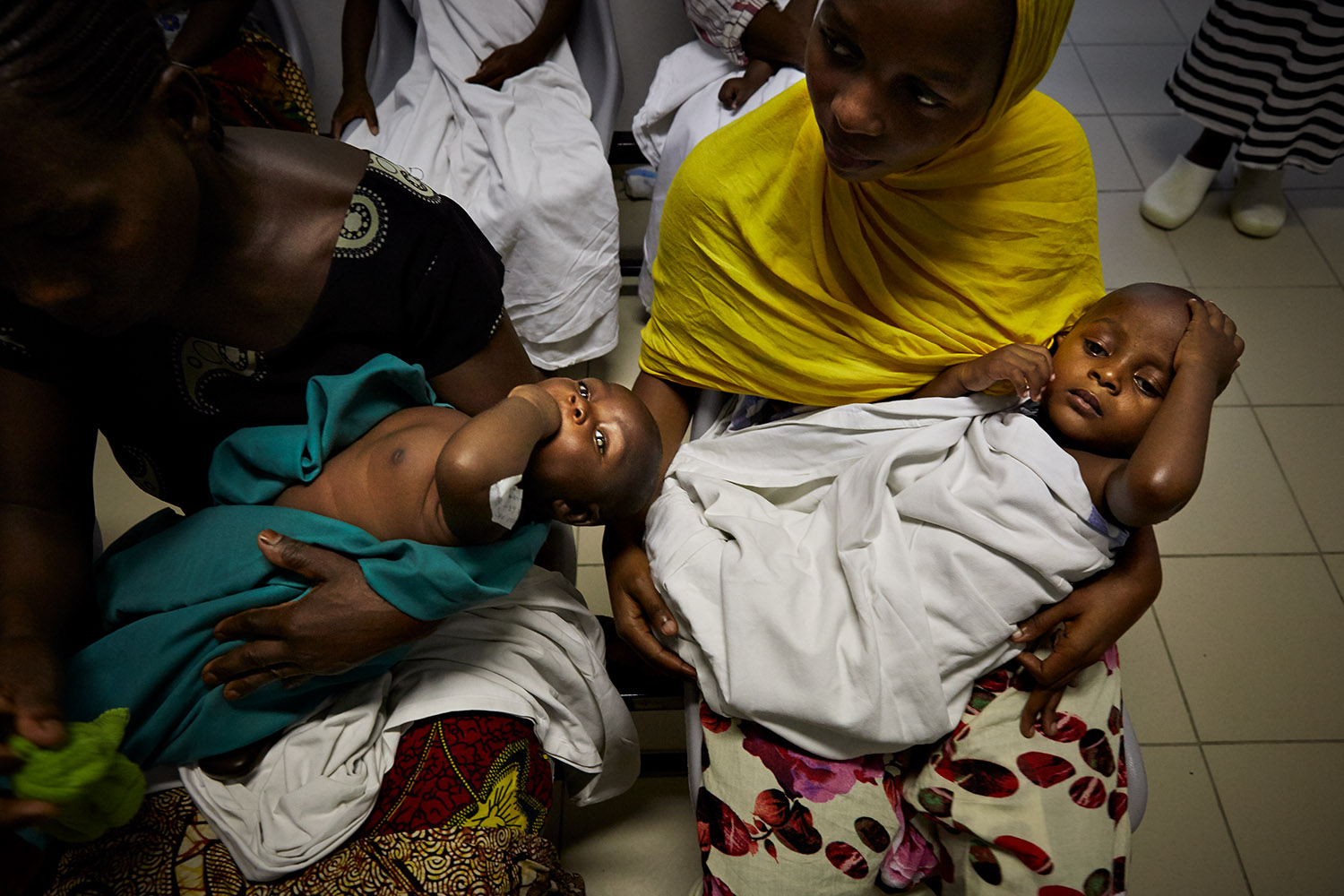
Muhimbili Hospital, Dar Es Salaam, Tanzania, 2016.
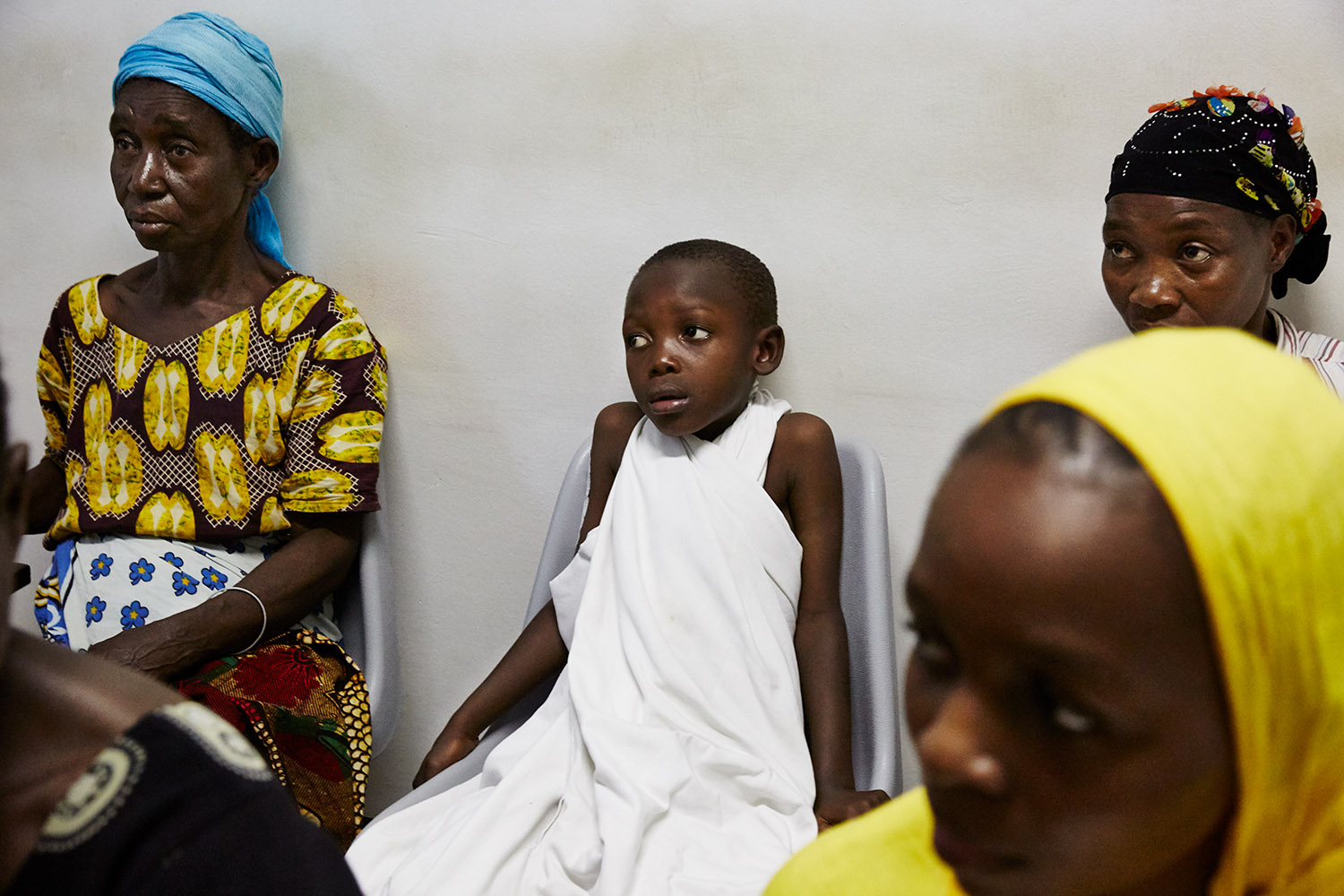
Muhimbili Hospital, Dar Es Salaam, Tanzania, 2016.
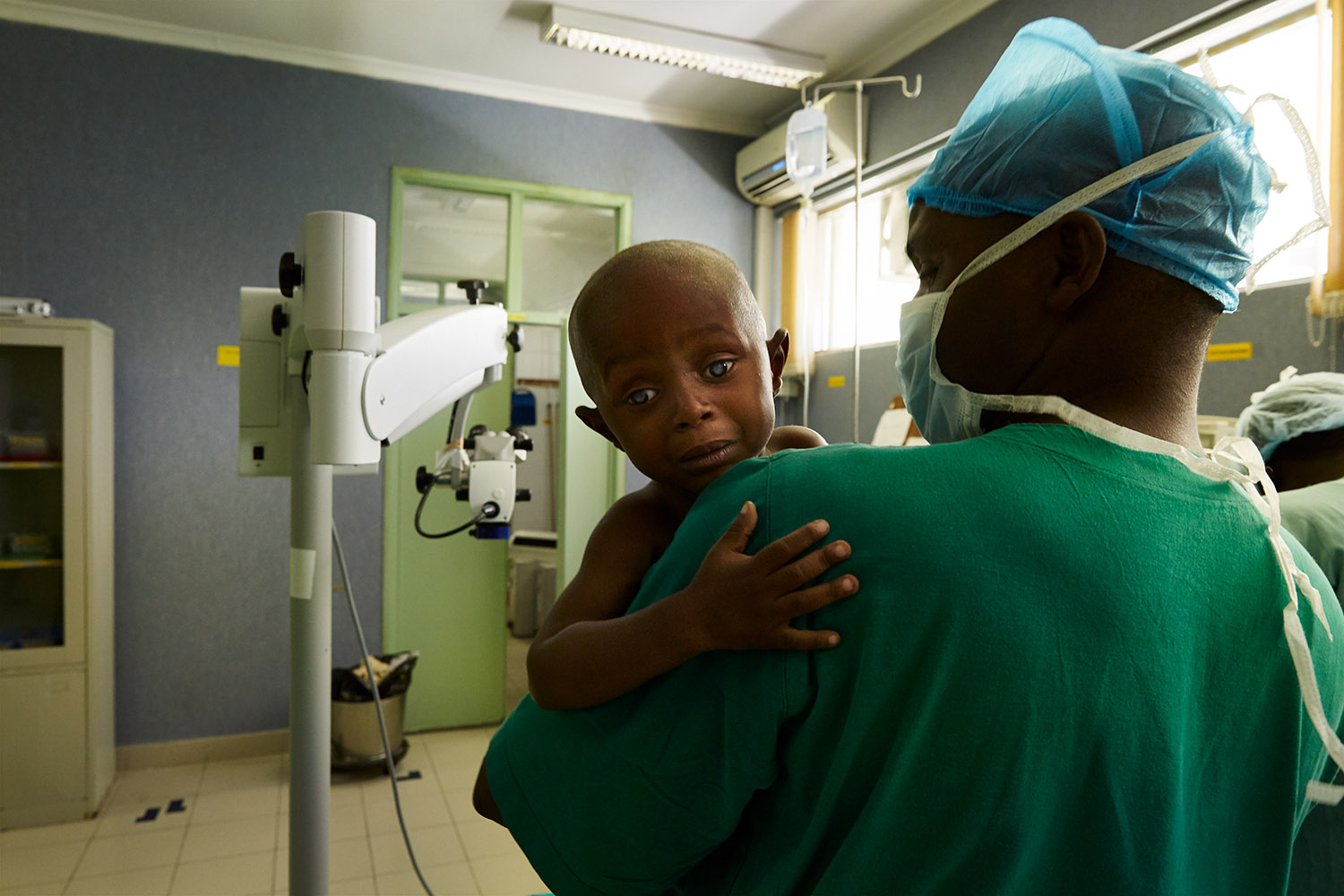
Baraka cries as he is taken into the operating theatre, Muhimbili Hospital, Dar Es Salaam, Tanzania, 2016.
Dr Nyaluke: “The difference between [cataracts in] adults and children is that adults can be done under local anaesthesia so we just give an injection, and after half an hour/45 mins it is done. But for children you have to give general anaesthesia so there are a lot of other things that come.”
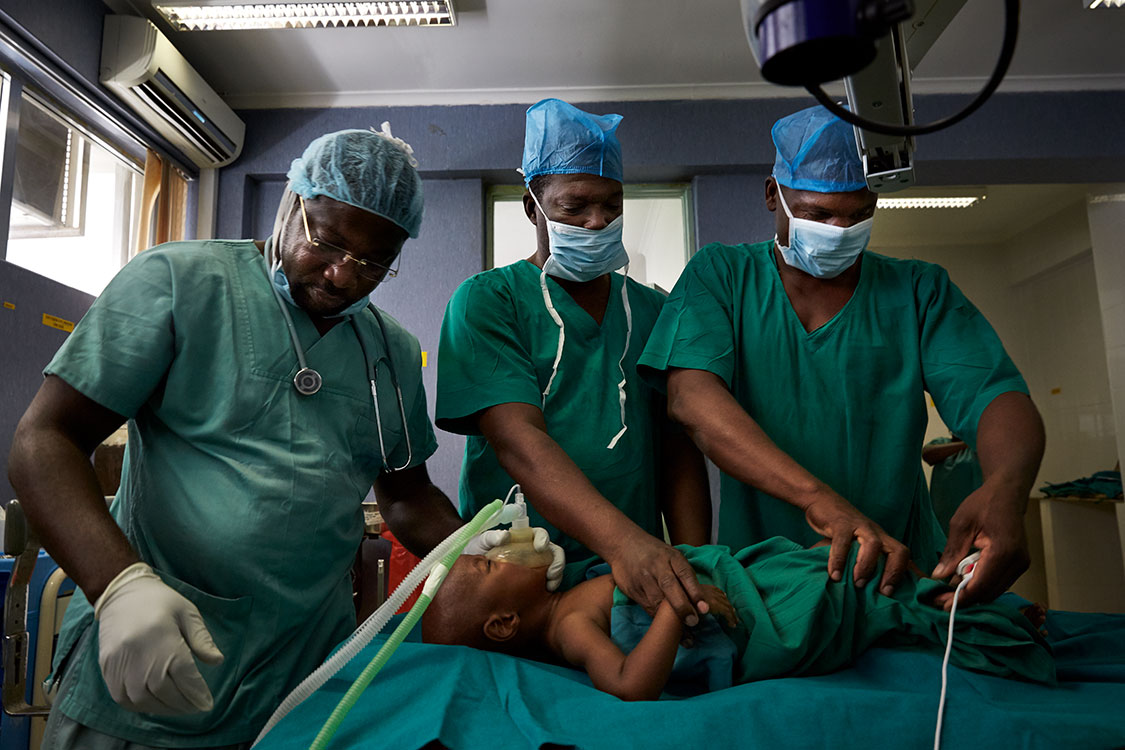
Two surgical staff gently move Baraka onto the operating table, while the anaesthetist keeps the mask in place, Muhimbili Hospital, Dar Es Salaam, Tanzania, 2016.
Dr Nyaluke: “With children you cannot predict the time – sometimes there is difficulty with intubation, sometimes you can’t find the vein. The operation can take half an hour or it can end up taking one hour or even one and a half hours – it is not predictable in children.”
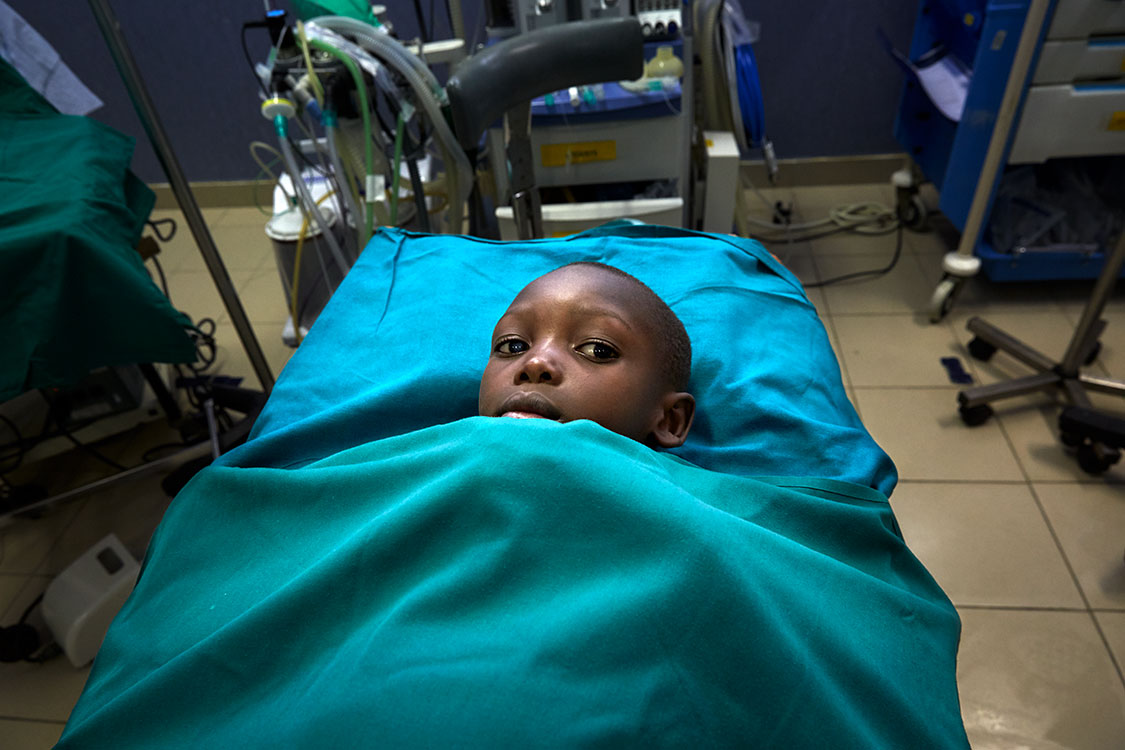
Haji looks out from under his blanket as he waits for the anaesthetist to give him his anaesthetic, Muhimbili Hospital, Dar Es Salaam, Tanzania, 2016.
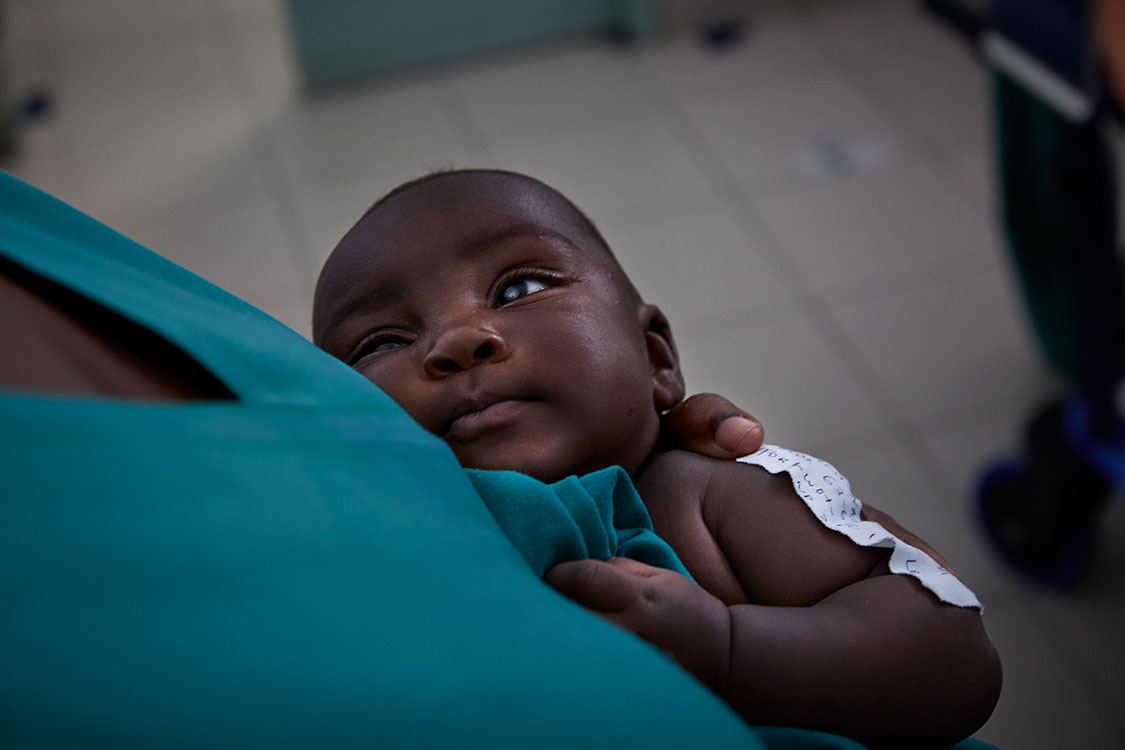
Paulo is carried into the O.R. by a member of the surgical staff, Muhimbili Hospital, Dar Es Salaam, Tanzania, 2016.
Paulo’s father, Nazaeli: “Paulo was named by me. I am a devoted Catholic and I read the Book of Acts. I remember Paul from the Book – a story where Paul has an encounter on the way to Damascus and he became blind for some time. I got the inspiration from the Book. What Paulo is going through now is just like the apostle Paul.”
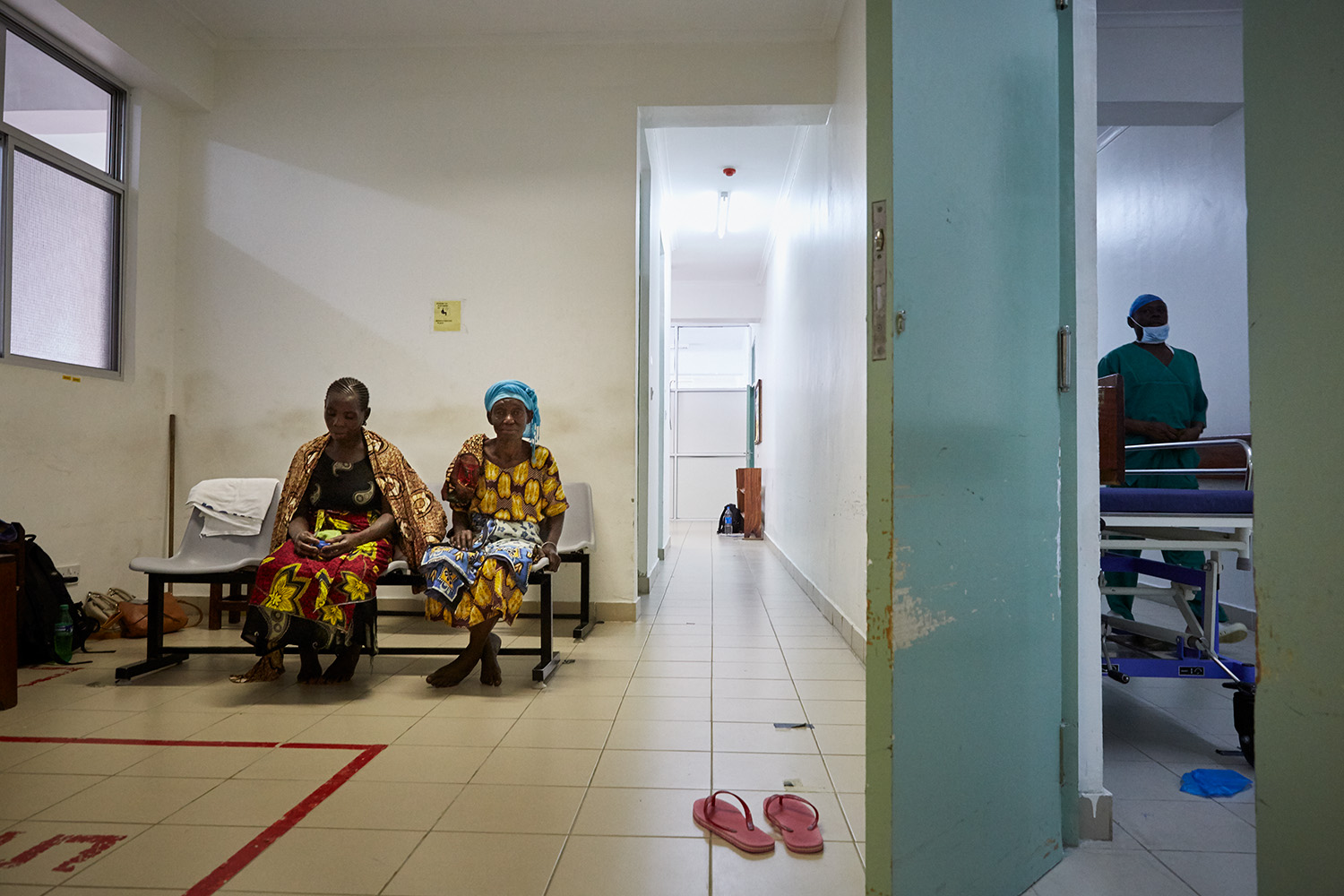
Paulo’s mother, Imelda and Haji’s grandmother, Elizabeth, wait for the surgeries to wrap up, Muhimbili Hospital, Dar Es Salaam, Tanzania, 2016.
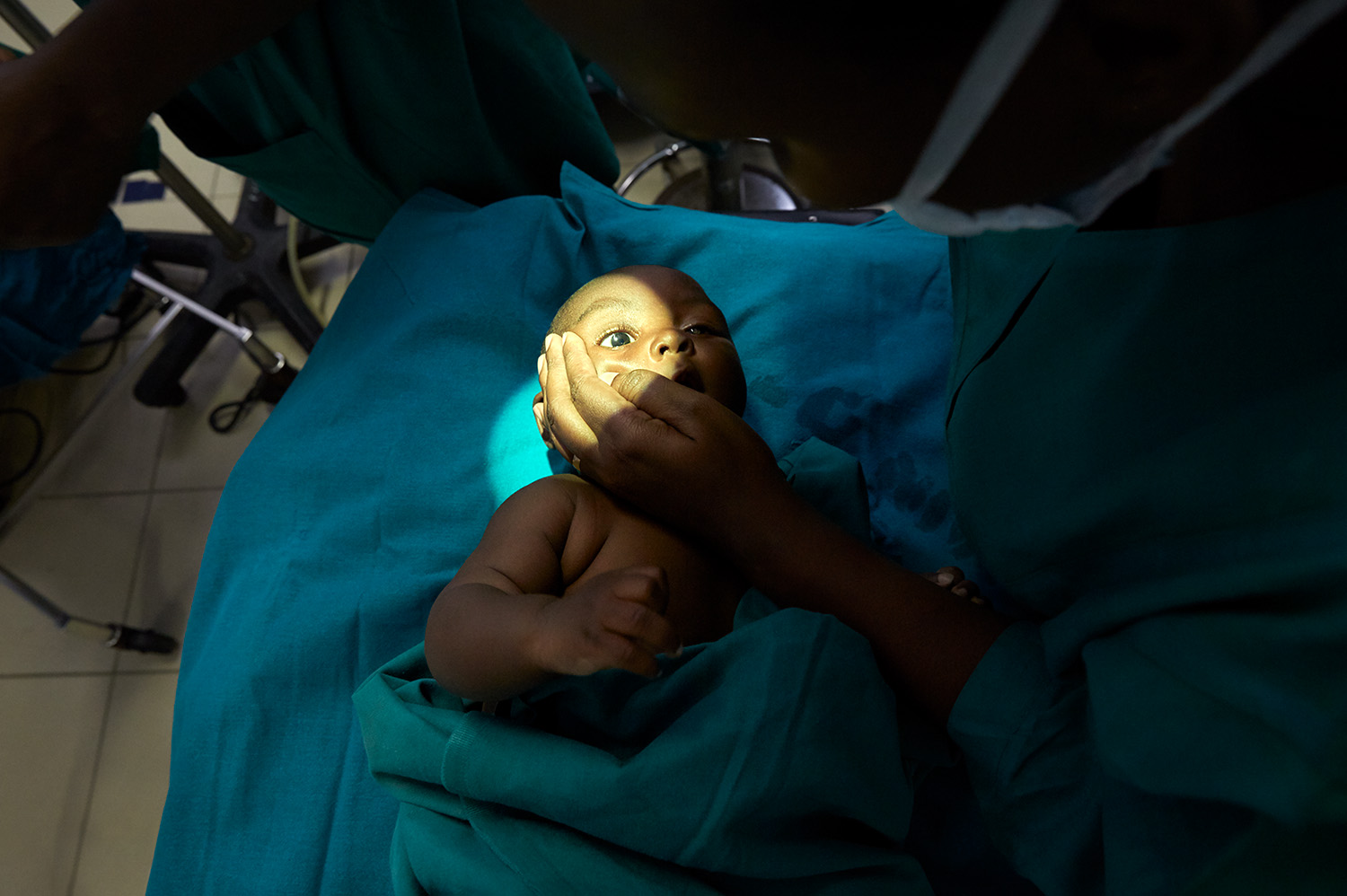
Paulo is calmed down by a member of the surgical staff at Muhimbili Hospital, Dar Es Salaam, Tanzania, 2016.
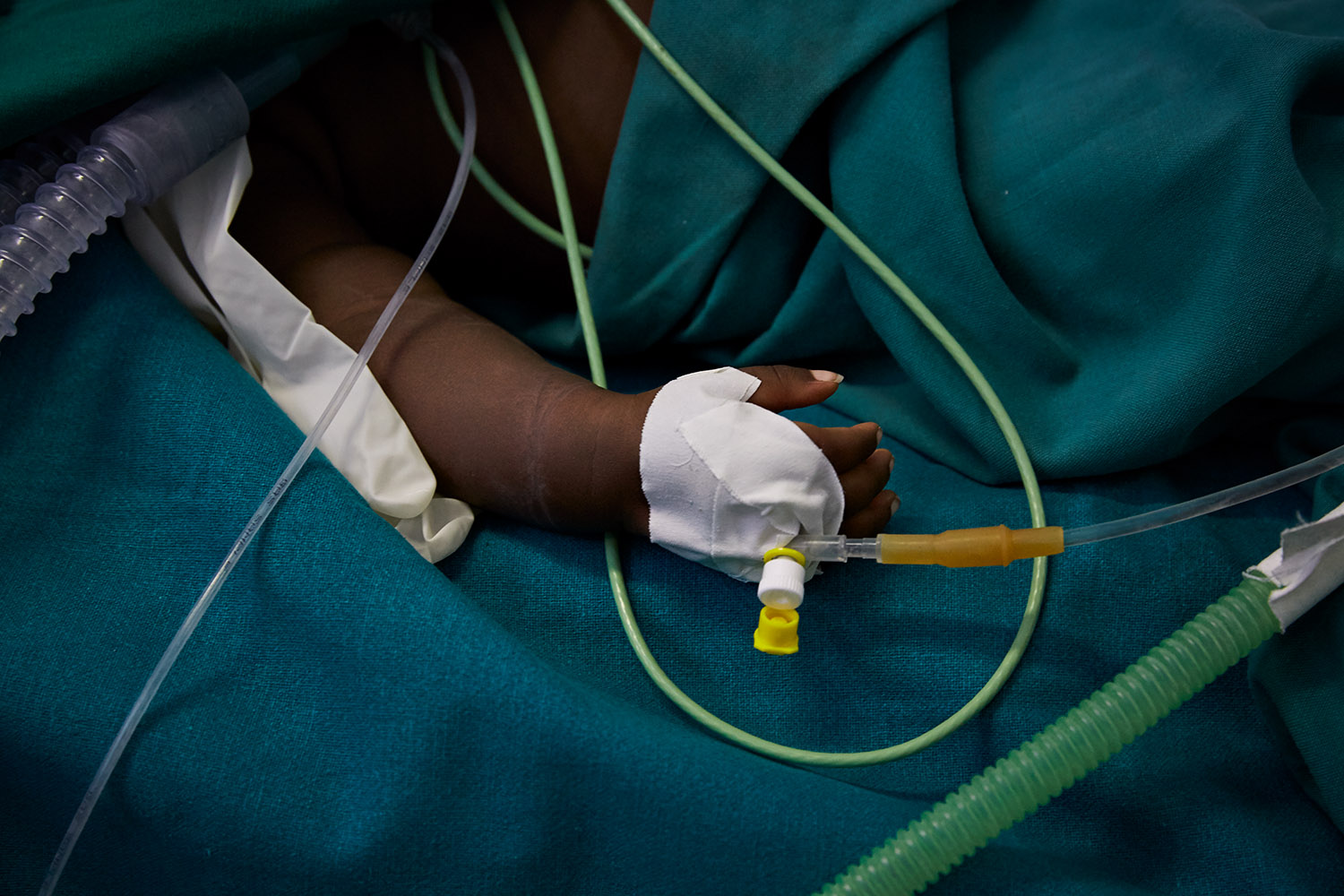
Muhimbili Hospital, Dar Es Salaam, Tanzania, 2016.
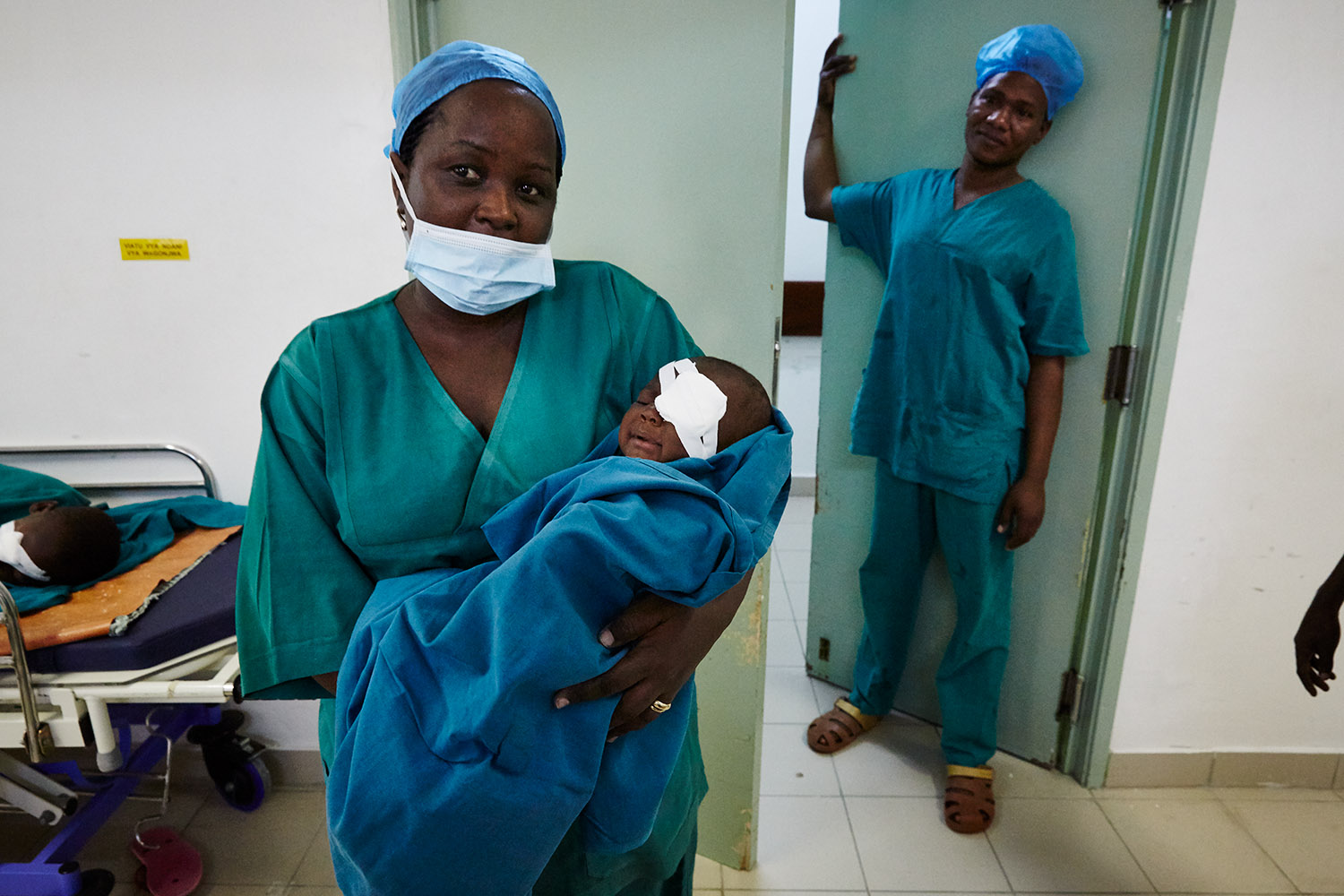
A member of the surgical staff carries Paulo out of the O.R., Muhimbili Hospital, Dar Es Salaam, Tanzania, 2016.
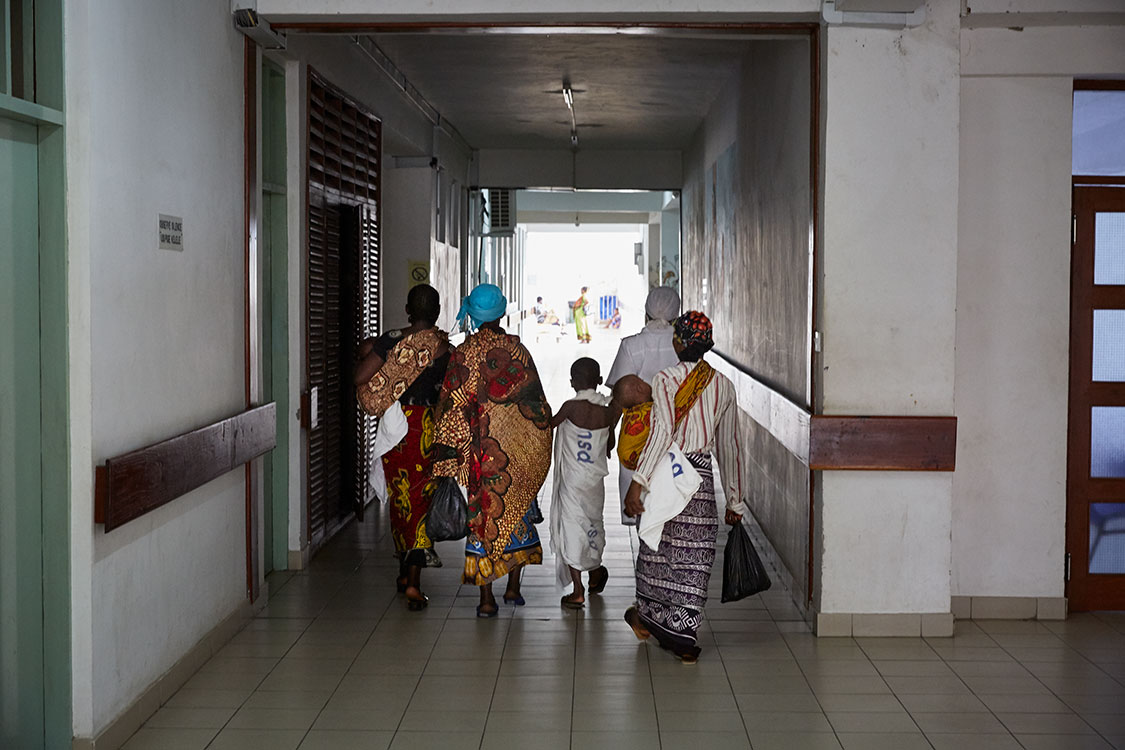
Zena and Baraka, Elizabeth and Haji, Imelda and Paulo, and Yulieta and Magdalena make their way back to the ward after the cataract operations, Muhimbili Hospital, Dar Es Salaam, Tanzania, 2016.
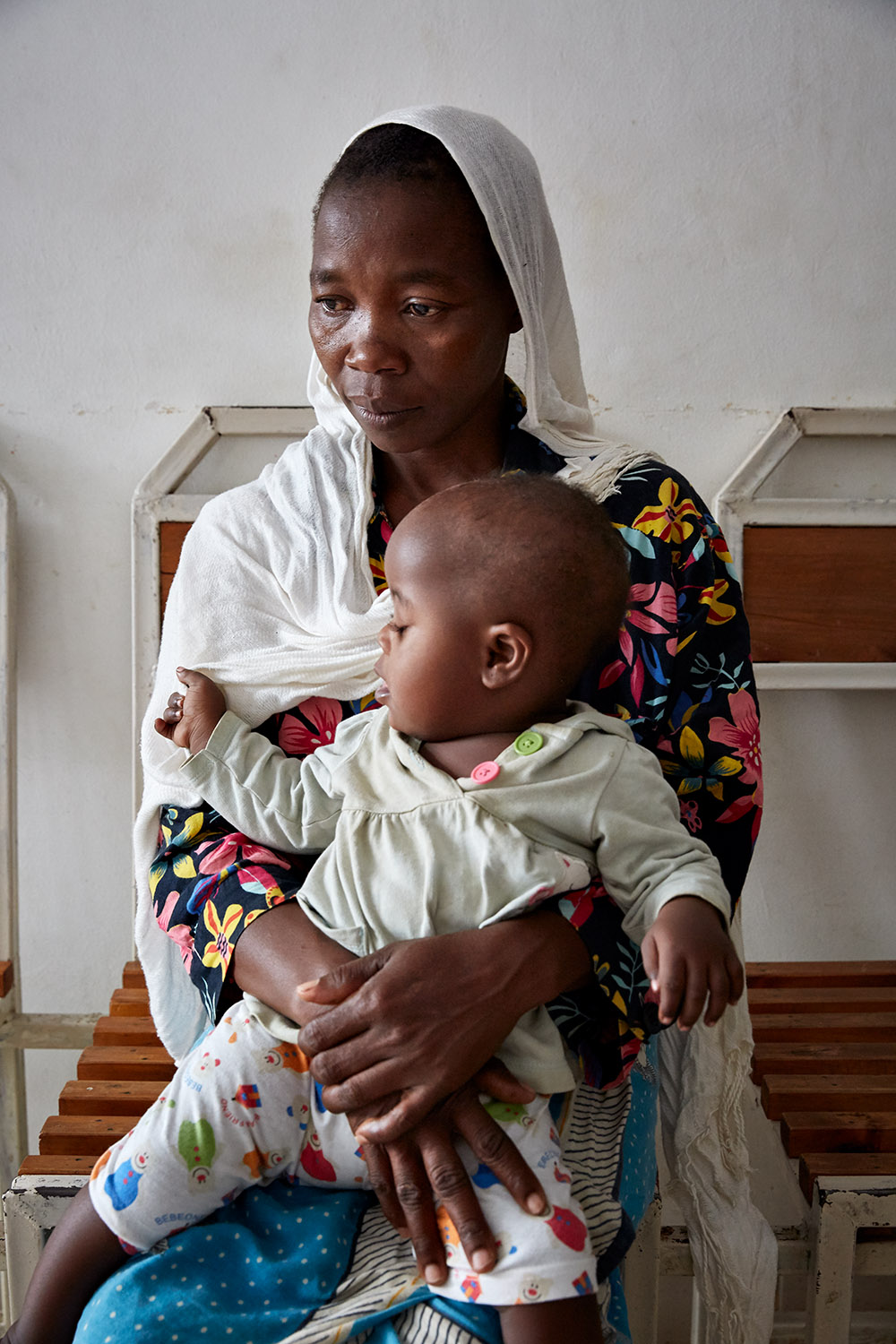
Magda’s surgery is delayed, as more tests need to be done. Muhimbili Hospital, Dar Es Salaam, Tanzania, 2016.
There is a genuine worry that the surgery might not happen at all. In the end, Magda was operated on a couple of days later.
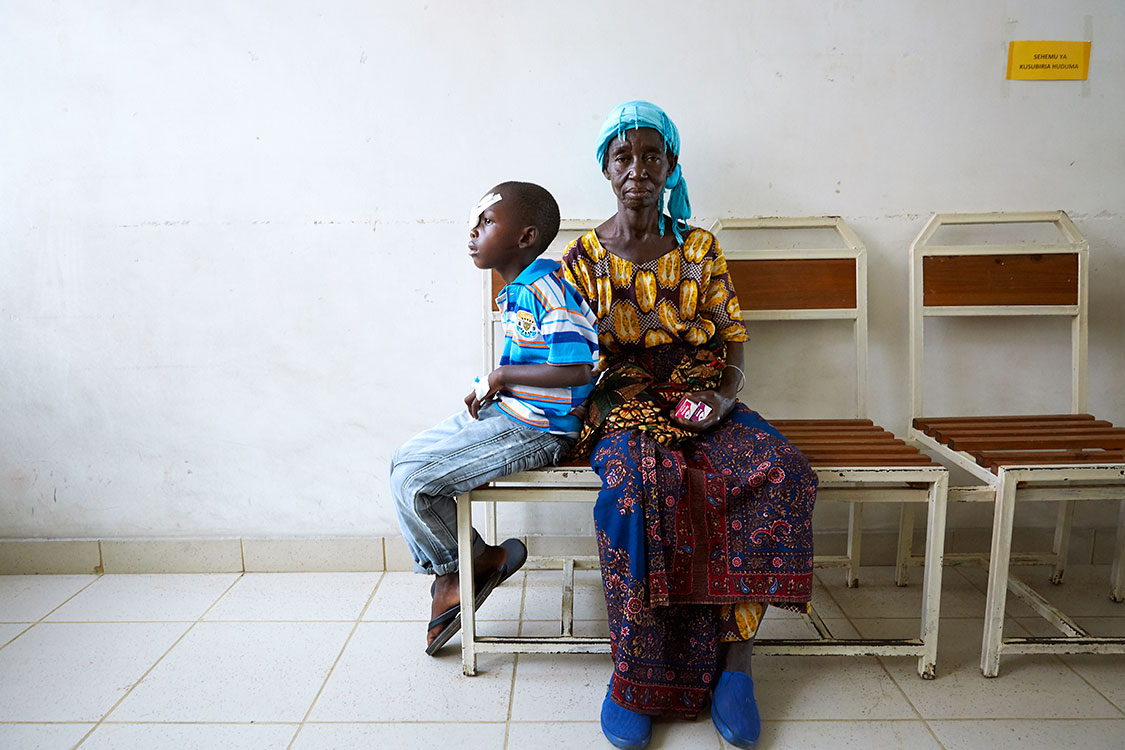
Elizabeth sits next to her grandson as they wait to have Haji’s eye inspected following his cataract surgery the previous day, Muhimbili Hospital, Dar Es Salaam, Tanzania, 2016.
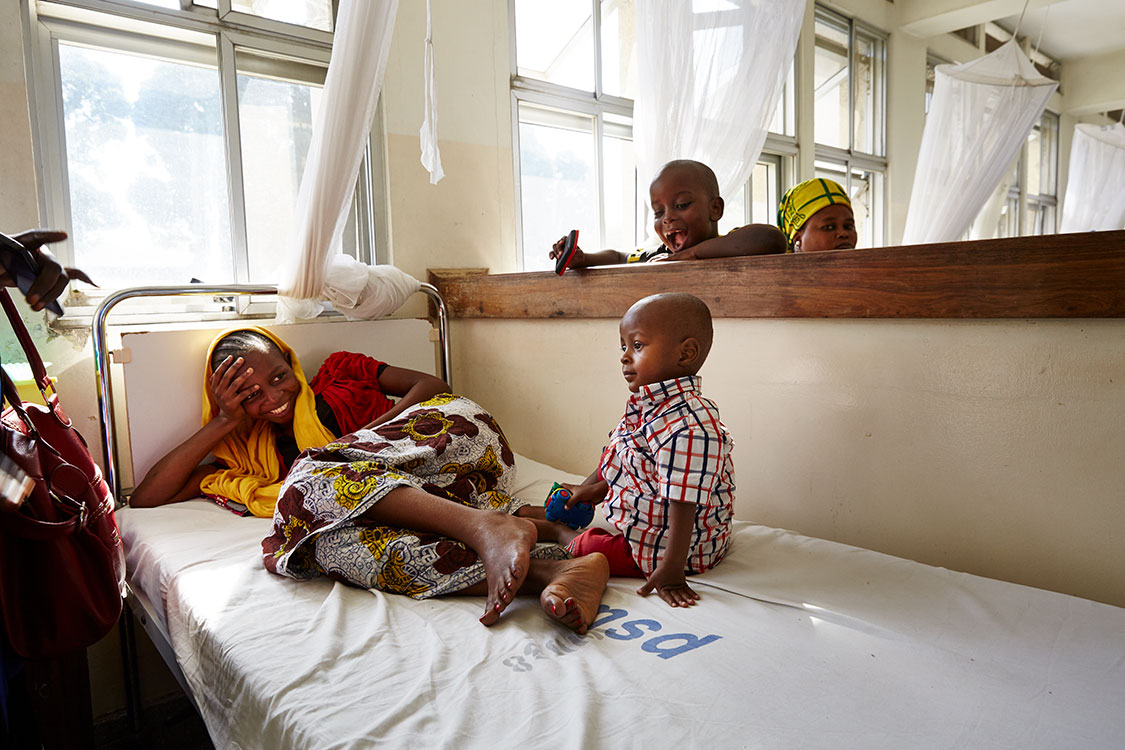
Baraka’s cataract were removed succesfully, Muhimbili Hospital, Dar Es Salaam, Tanzania, 2016.
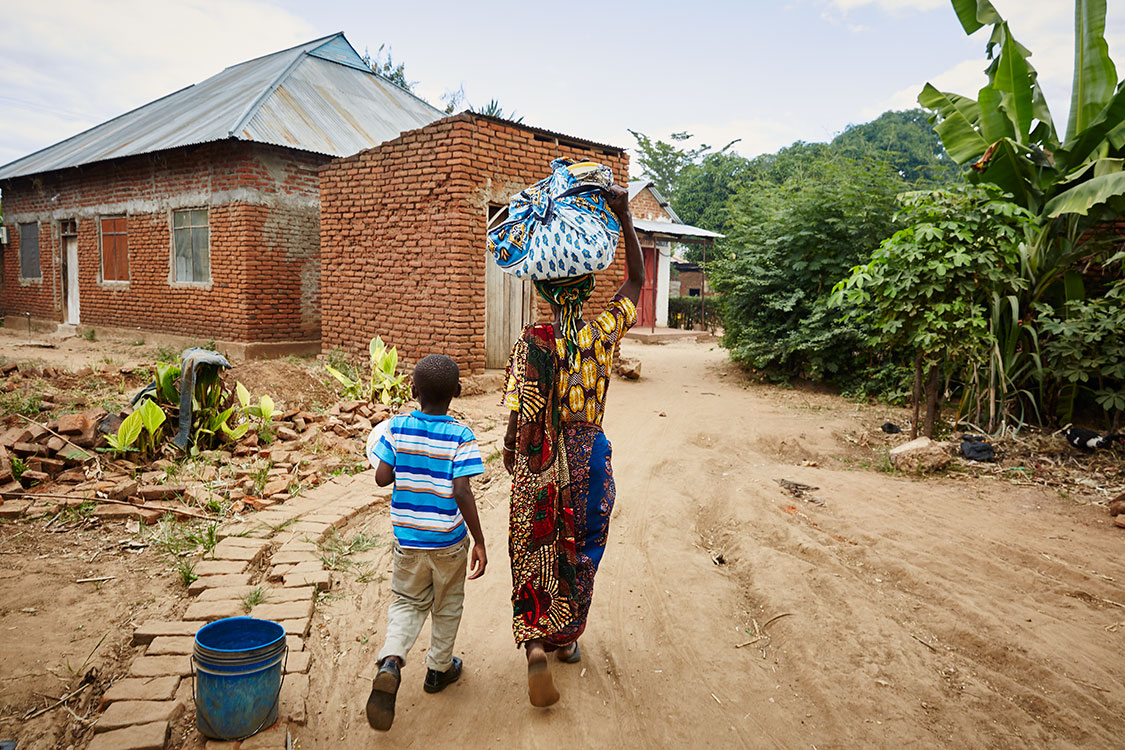
Haji and his grandmother, Elizabeth return home after a successful surgery, Tanzania, 2016.
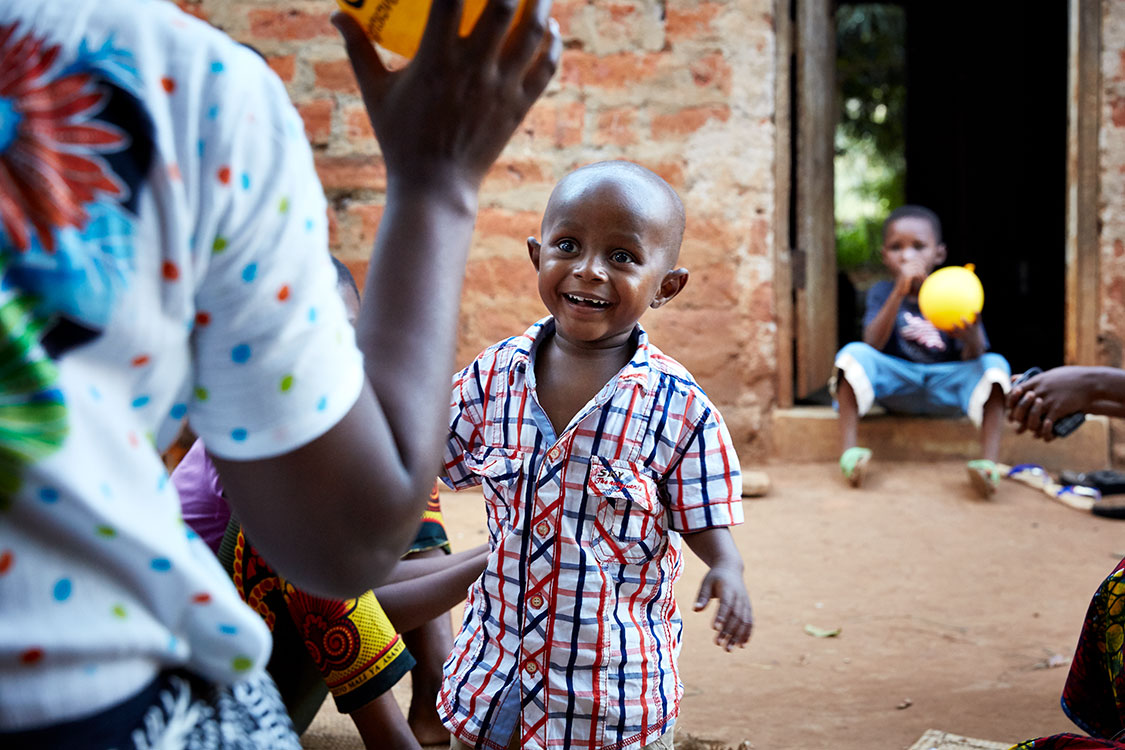
His eye sight fully restored, Baraka laughs as he sees a relative Mkenge Village, near Morogoro, Tanzania, 2016.
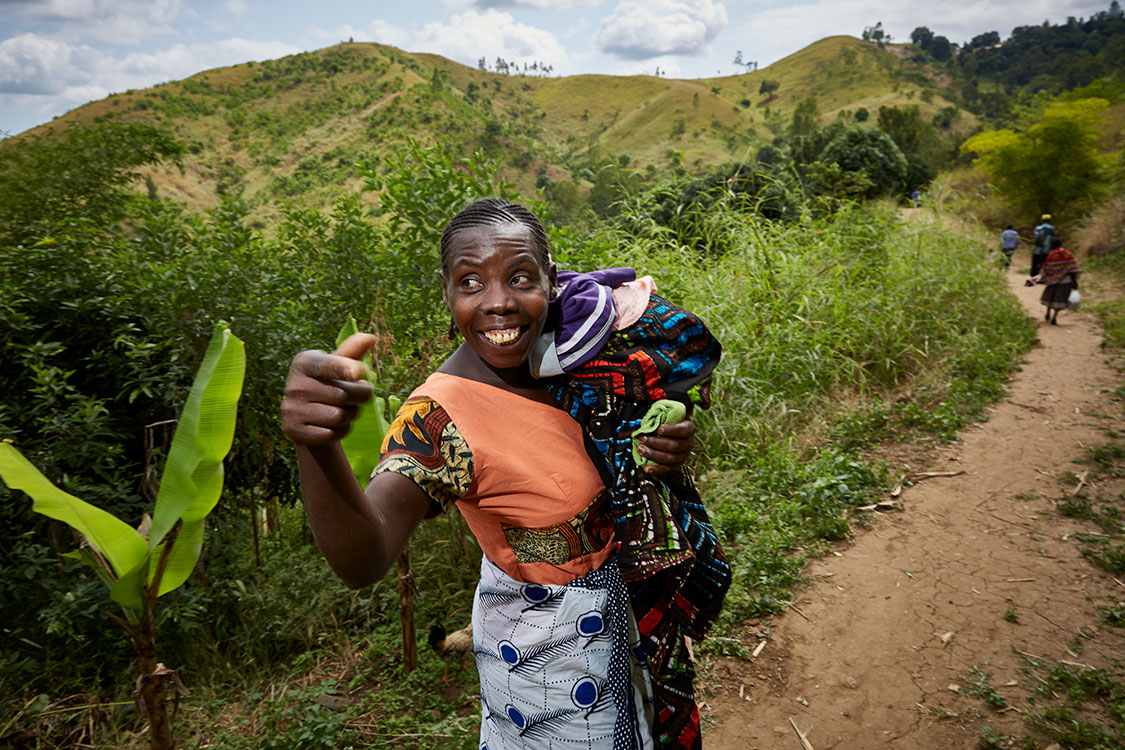
Paulo & Imelda return home after a successful surgery, Peko Misegese Village, not far from Malali, Tanzania, 2016.





































Paulo with his mother Imelda at their home in Peko Misegese Village, not far from Malali, Tanzania, 2016.
Paulo has a cataract in one eye.
Mkenge Village, near Morogoro, Tanzania, 2016.
The village in which they live, Mkenge, sits a short walk back from a narrow tarmac road; and is made up of a few 3 or 4 roomed mud brick houses clustered around a clearing dotted with trees.
Haji’s home, Tanzania, 2016.
Haji has a cataract in his right eye that has been impairing his vision since October 2015. His grandmother Elizabeth, who Haji lives with, along with his brothers, isn’t quite sure what happened to her grandson’s eye, because Haji was living with his mother at the time.
Mkenge Village, near Morogoro, Tanzania, 2016.
Dr. Ashraf, one of the doctors who travels across Tanzania in search of children who are either already suffering from cataract, or who are at risk of developing it.
HAji’s eye’s are tested by Dr. Ashraf as his father looks on, Haji’s home, Tanzania, 2016.
Approximately three-quarters of the estimated 1.4 million blind children in the world live in the poorest regions of Africa and Asia. Cataract is widely seen as something that affects older people, but in a lot of developing countries it’s a huge problem for children – they can be born with cataract or develop it as a result of an accident.
Haji doodles on a blackboard, Tanzania, 2016.
When he grows up, he says he wants to be a farmer like his dad.
Mbili Village, Morogoro area, Tanzania, 2016.
Yulieta: “Immediately after the birth I noticed that the eyes were not normal. I looked in the pupils and found a white thing instead off a black dot – that’s when I realized something was not right. Although I have never had a child with cataract, I knew immediately it was a cataract. I asked the nurse about it but she told me that Magdalena just had a lot of swagger!”
Mkenge Village, near Morogoro, Tanzania, 2016.
Zena: “At the hospital they looked at him and they said they can’t do anything about it [the regional hospital doesn’t have the facilities to perform child cataract surgeries] so they referred me to Muhimbili [a hospital in Dar Es Salaam, approximately four hours by car] and they told me to go home and find some money to take him”.
Muhimbili Hospital, Dar Es Salaam, Tanzania, 2016.
Imelda: “When Paulo was just two months old, we looked into his eyes and we could see something in the eye. We could tell that he couldn’t see, I don’t know how, but we could just tell. We have six children already, but nobody else has had eye problems. I was filled with sadness to realize Paulo could not see. I am sad that he cannot see my face.”.
Baraka and his mother leave home to head to Muhimbili Hospital in the capital Dar Es Salaam, Mkenge Village, near Morogoro, Tanzania, 2016.
Zena comforts her son Baraka as they sit in an ambulance which is on its way to Muhimbili Hospital in Dar Es Salaam, Tanzania’s capital city, 2016.
From left to right: Elizabeth, Imelda and Zena share an ambulance which is on its way to Muhumbili Hospital in Tanzania’s capital, Dar Es Salaam, 2016. Paolo sits on his mother’s lap, while Haji and Baraka are seated off camera.
Muhimbili Hospital, Dar Es Salaam, Tanzania, 2016.
Yulieta: “Coming here has taught me a lot, and one of the things it has taught me is that I’m not alone, and that Magdalena’s not alone, and that there are so many people around. Talking to other mothers, it has taught me to be strong.”
Muhimbili Hospital, Dar Es Salaam, Tanzania, 2016.
Dr Nyaluke: “Coming to us is an issue. The families are afraid to travel long distances, coming to a big city like this. Even if they want to, even if they are not afraid they may have no transport, no money to make them come this far.”
Muhimbili Hospital, Dar Es Salaam, Tanzania, 2016.
Baraka looks on as his mother, Zena, signs a document related to her son’s operation, Muhimbili Hospital, Dar Es Salaam, Tanzania, 2016.
Muhimbili Hospital, Dar Es Salaam, Tanzania, 2016.
Muhimbili Hospital, Dar Es Salaam, Tanzania, 2016.
Muhimbili Hospital, Dar Es Salaam, Tanzania, 2016.
Zena and Baraka, Elizabeth and Haji, Imelda and Paulo, and Yulieta and Magdalena wait to be taken into the O.R, Muhimbili Hospital, Dar Es Salaam, Tanzania, 2016.
Muhimbili Hospital, Dar Es Salaam, Tanzania, 2016.
Muhimbili Hospital, Dar Es Salaam, Tanzania, 2016.
Baraka cries as he is taken into the operating theatre, Muhimbili Hospital, Dar Es Salaam, Tanzania, 2016.
Dr Nyaluke: “The difference between [cataracts in] adults and children is that adults can be done under local anaesthesia so we just give an injection, and after half an hour/45 mins it is done. But for children you have to give general anaesthesia so there are a lot of other things that come.”
Two surgical staff gently move Baraka onto the operating table, while the anaesthetist keeps the mask in place, Muhimbili Hospital, Dar Es Salaam, Tanzania, 2016.
Dr Nyaluke: “With children you cannot predict the time – sometimes there is difficulty with intubation, sometimes you can’t find the vein. The operation can take half an hour or it can end up taking one hour or even one and a half hours – it is not predictable in children.”
Haji looks out from under his blanket as he waits for the anaesthetist to give him his anaesthetic, Muhimbili Hospital, Dar Es Salaam, Tanzania, 2016.
Paulo is carried into the O.R. by a member of the surgical staff, Muhimbili Hospital, Dar Es Salaam, Tanzania, 2016.
Paulo’s father, Nazaeli: “Paulo was named by me. I am a devoted Catholic and I read the Book of Acts. I remember Paul from the Book – a story where Paul has an encounter on the way to Damascus and he became blind for some time. I got the inspiration from the Book. What Paulo is going through now is just like the apostle Paul.”
Paulo’s mother, Imelda and Haji’s grandmother, Elizabeth, wait for the surgeries to wrap up, Muhimbili Hospital, Dar Es Salaam, Tanzania, 2016.
Paulo is calmed down by a member of the surgical staff at Muhimbili Hospital, Dar Es Salaam, Tanzania, 2016.
Muhimbili Hospital, Dar Es Salaam, Tanzania, 2016.
A member of the surgical staff carries Paulo out of the O.R., Muhimbili Hospital, Dar Es Salaam, Tanzania, 2016.
Zena and Baraka, Elizabeth and Haji, Imelda and Paulo, and Yulieta and Magdalena make their way back to the ward after the cataract operations, Muhimbili Hospital, Dar Es Salaam, Tanzania, 2016.
Magda’s surgery is delayed, as more tests need to be done. Muhimbili Hospital, Dar Es Salaam, Tanzania, 2016.
There is a genuine worry that the surgery might not happen at all. In the end, Magda was operated on a couple of days later.
Elizabeth sits next to her grandson as they wait to have Haji’s eye inspected following his cataract surgery the previous day, Muhimbili Hospital, Dar Es Salaam, Tanzania, 2016.
Baraka’s cataract were removed succesfully, Muhimbili Hospital, Dar Es Salaam, Tanzania, 2016.
Haji and his grandmother, Elizabeth return home after a successful surgery, Tanzania, 2016.
His eye sight fully restored, Baraka laughs as he sees a relative Mkenge Village, near Morogoro, Tanzania, 2016.
Paulo & Imelda return home after a successful surgery, Peko Misegese Village, not far from Malali, Tanzania, 2016.